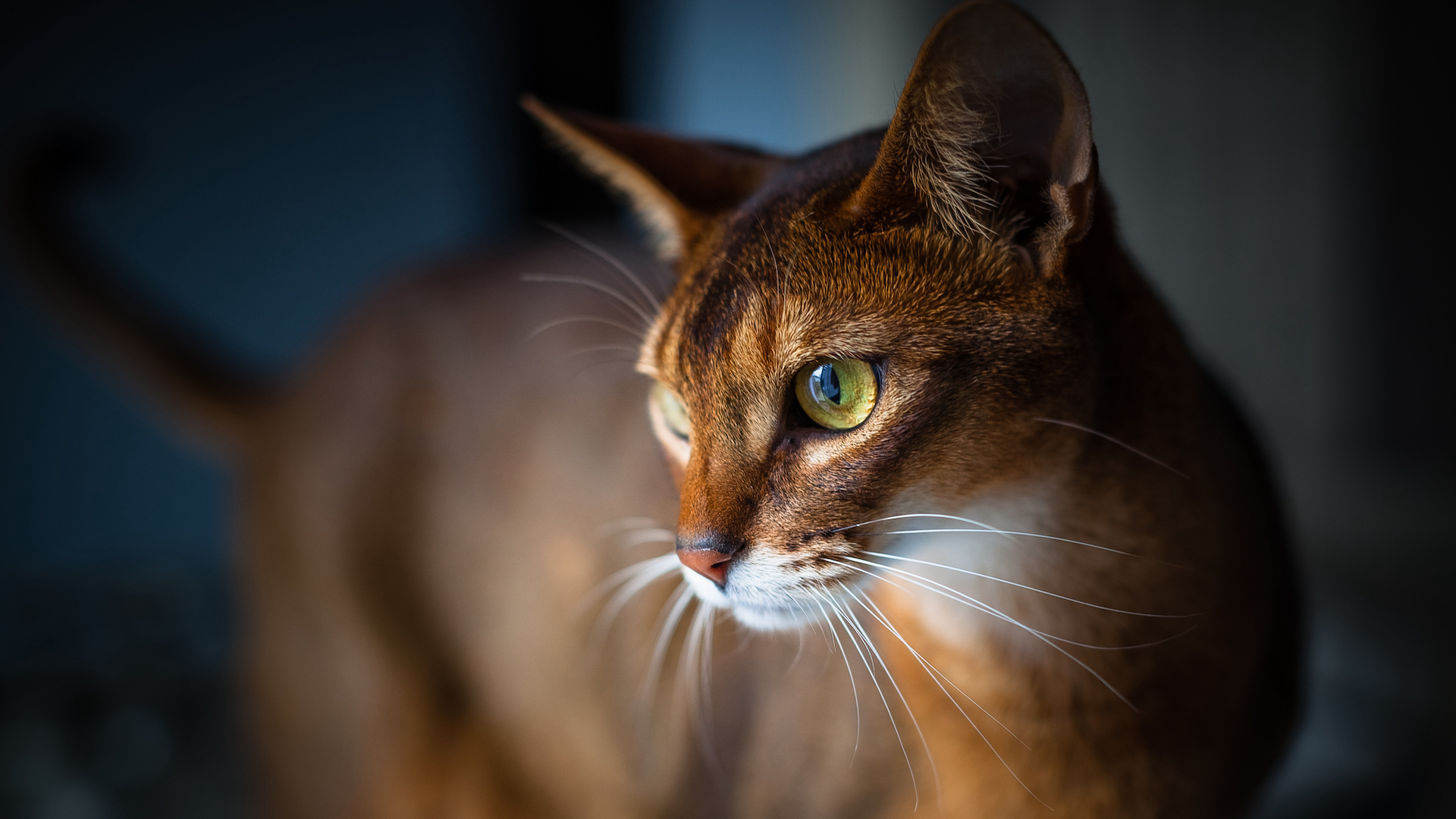
The regal-looking Abyssinian cat – Aby for short – may look like an Egyptian aristocrat and be named after a fallen empire, but their origins are fairly mysterious. While we can’t say for sure exactly how this striking breed with distinctive ticked coat came into being, it is one of the oldest official breeds and quickly established its place as one of the most popular pedigree cats in the world.
They’re energetic, playful, affectionate, act like dogs, and even enjoy canine company – this is no ordinary cat. If you are lucky enough to have one of these cats, you definitely need to have some of the best cat toys to keep them happy.
Let’s find out some fun facts about the Abyssinian cat.
32 fun facts about Abyssinian cats
1. Mixed origins
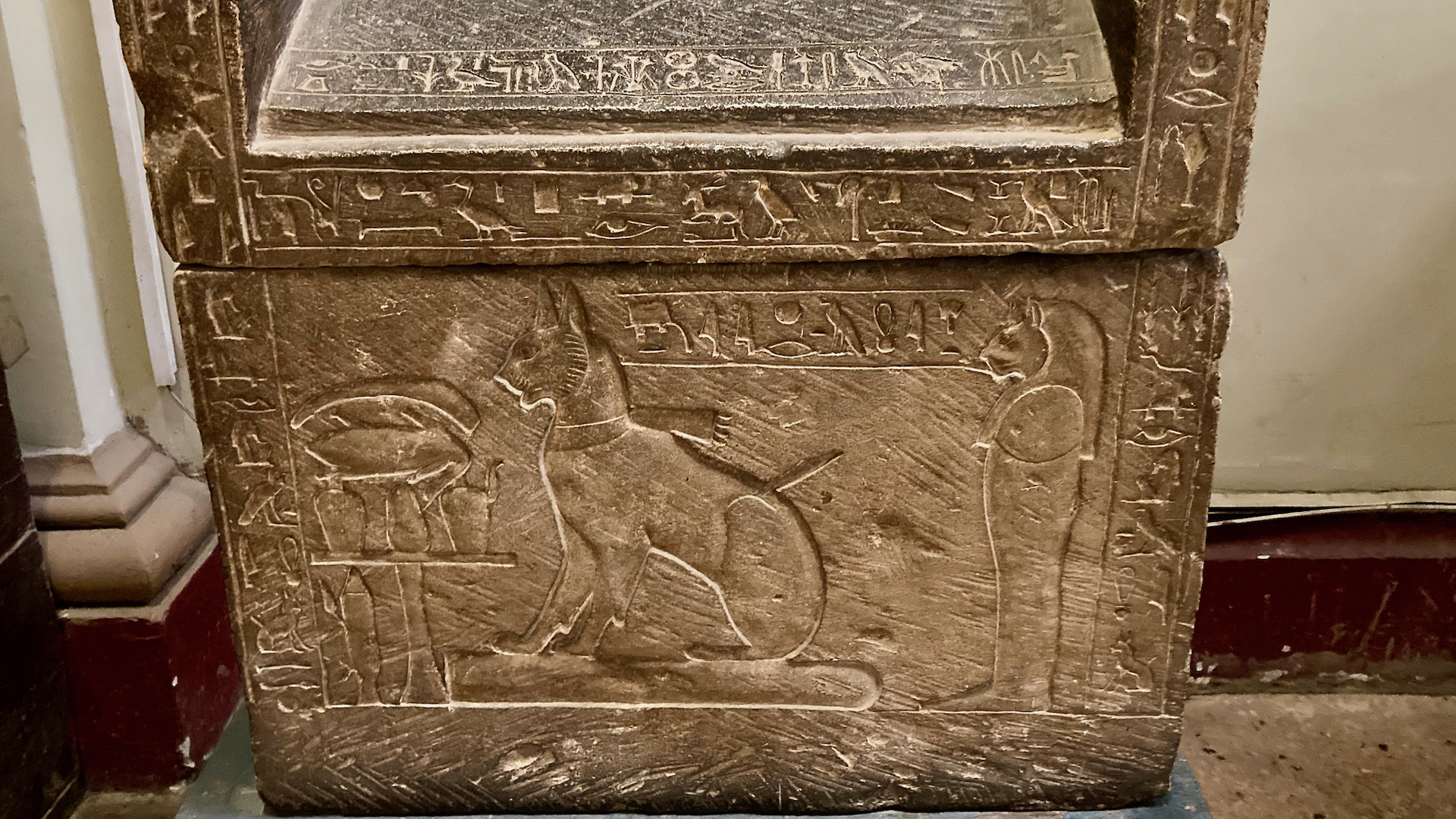
As Abyssinia is the former name for the Ethiopian Empire, you would assume this breed’s origins lie in what is now Ethiopia, however it’s not so simple. Abyssinian cats resemble those depicted on ancient Egyptian tombs and other artwork, while a taxidermized exhibit of an identifiable Aby links back to India – the Indian Ocean coastline and south-east Asia.
Abyssinian cats were reportedly imported into the UK after the Abyssinian War and exhibited in shows and likely crossed with British native cats. But who knows where their roots truly lie – it’s a mixed and exotic heritage, for sure.
2. Ticked tabbies
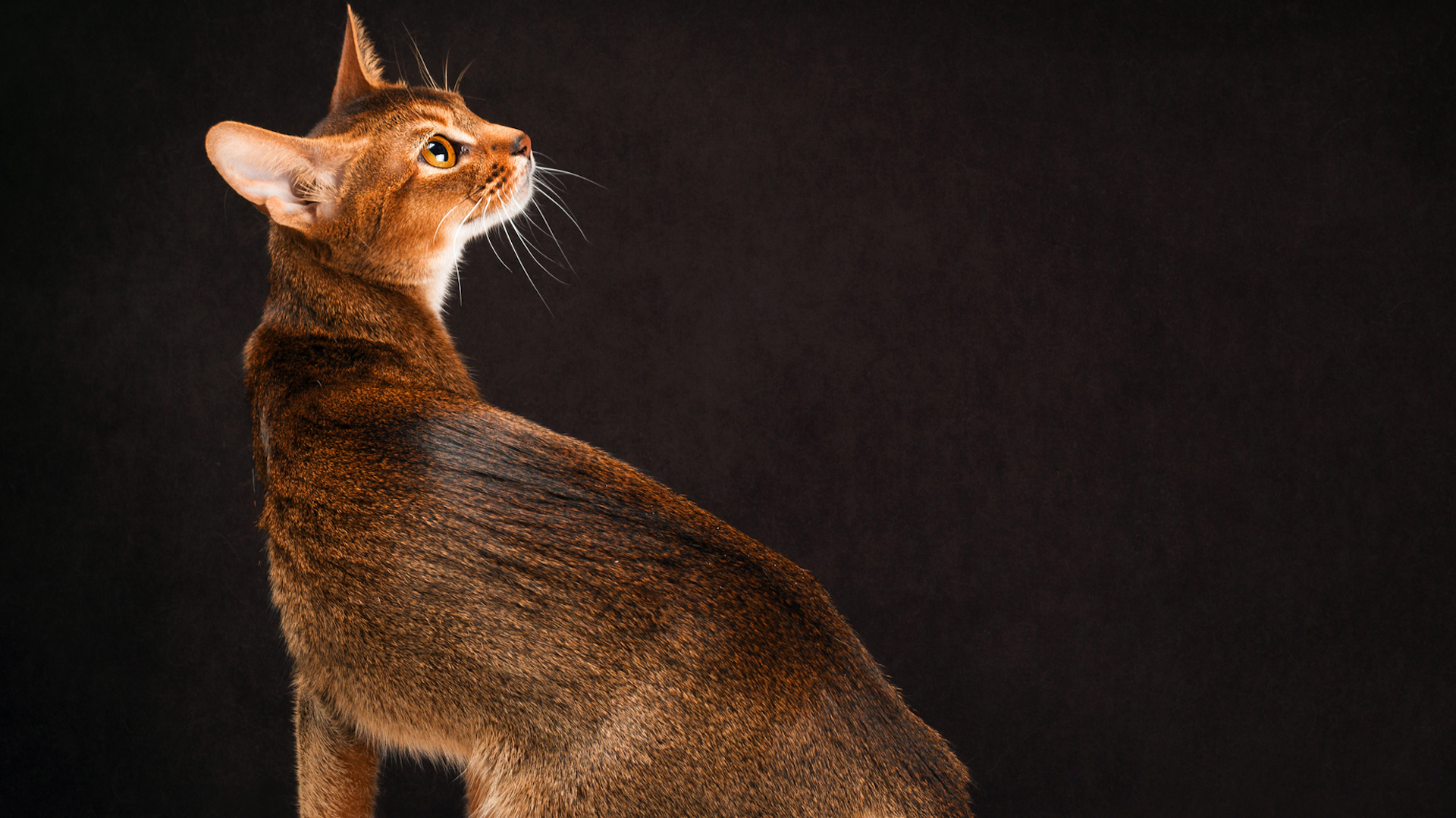
A defining feature of the Abyssinian cat is its ticked tabby coat. Ticking is a feline coat pattern in which the individual hairs have banding rather than a striped pattern. Each hair is ticked with up to six bands of color, dark at the tip and lighter at the roots, which gives it a distinctive shimmer.
3. Facial markings
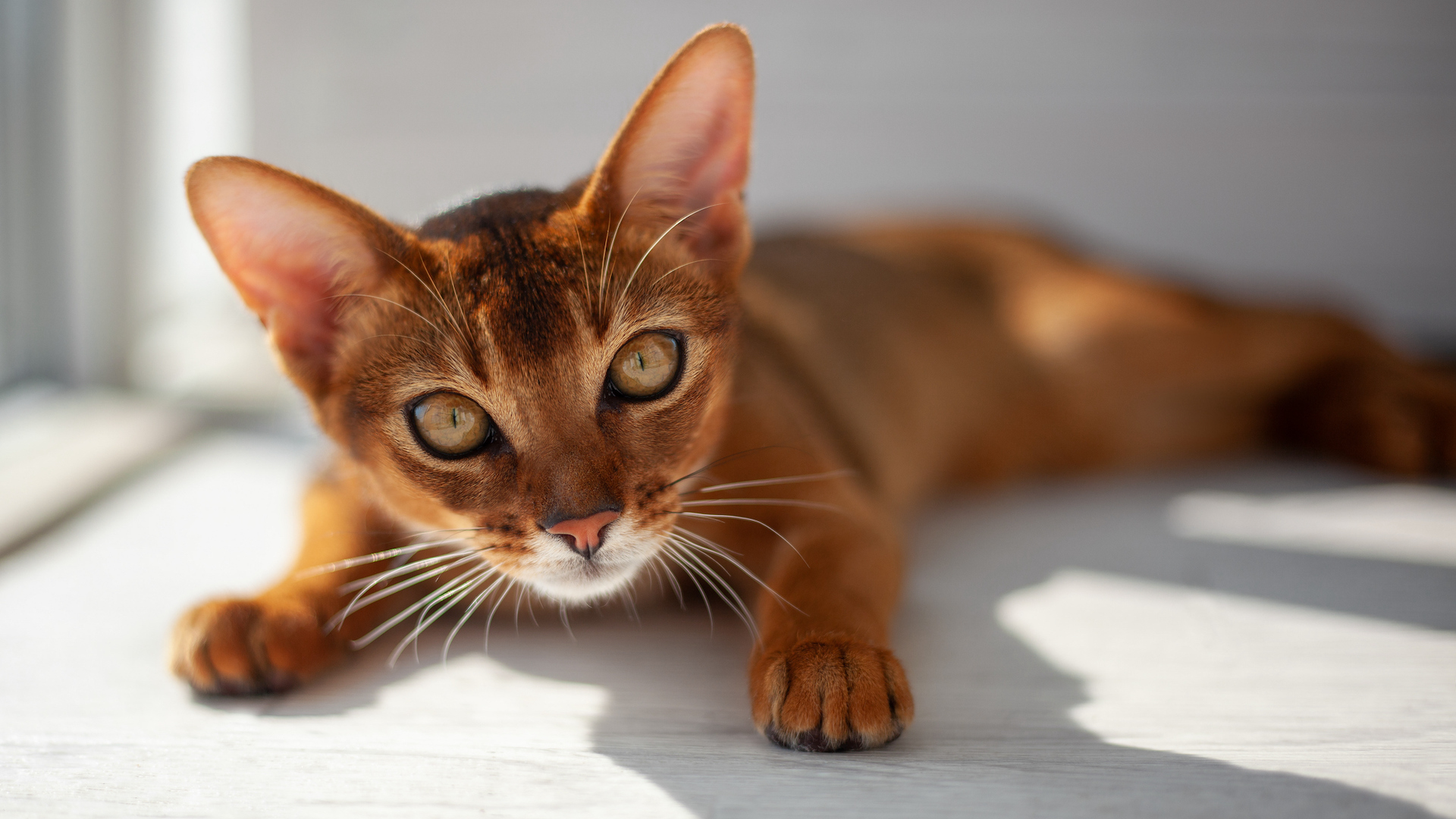
The Abyssinian is distinguished by its coat that has no markings on the legs, tail, and neck, but dramatic facial markings, with dark lines extending from the eyes and brow, making their eyes stand out. Dots and shading on the cheekbones and whisker pads enhance their beautiful faces.
4. Four colors
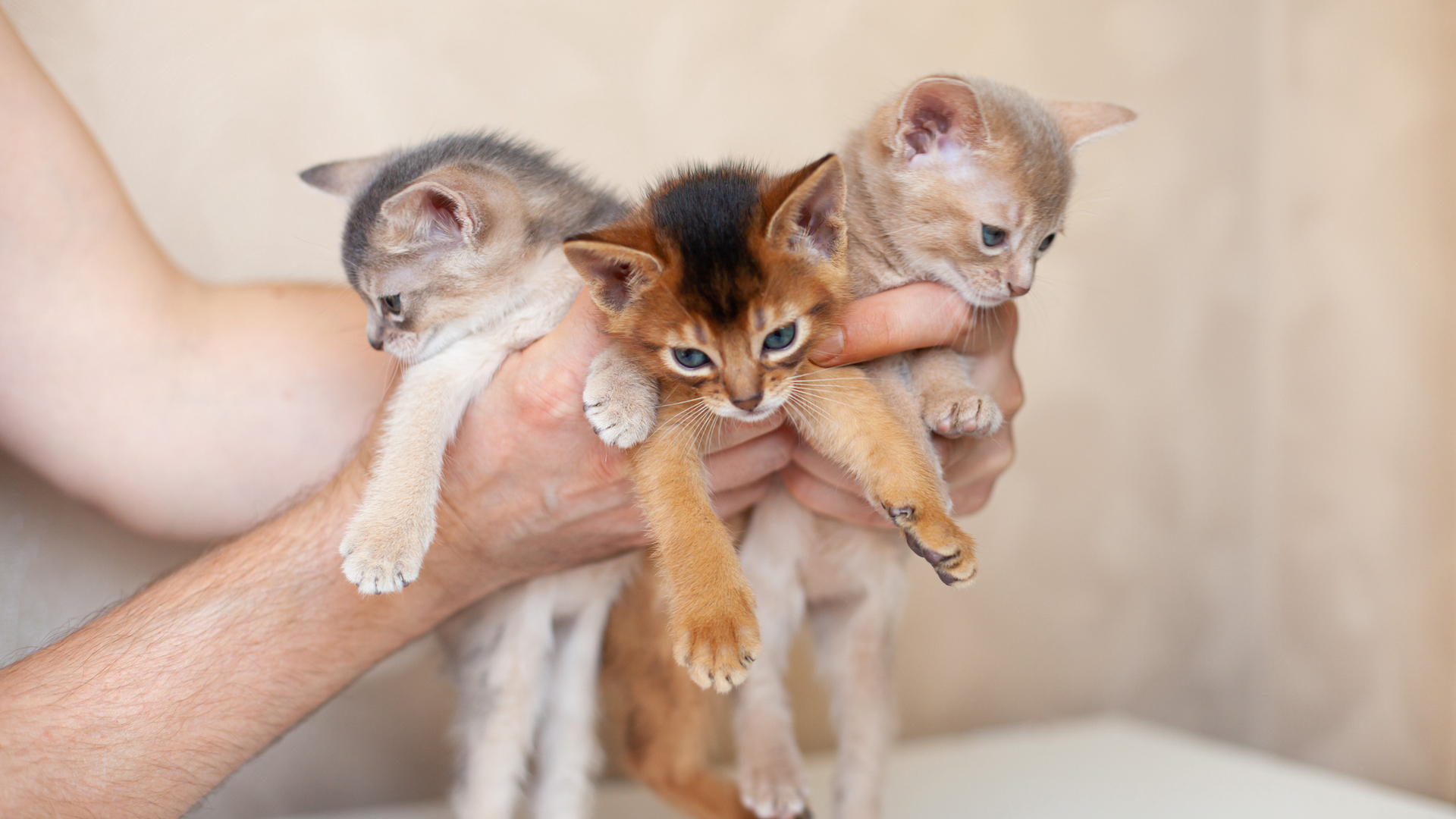
While Abyssinians officially come in only four colors – ruddy, red (sometimes called cinnamon or sorrel), blue, and fawn – the ticking means there is huge variety in appearance. For instance, the bands in the fawn range from light cocoa to a warm pinky-beige, and the ruddy varies from almost black to orange, giving an overall impression of burnt sienna.
Some societies include lilac, cream, silver, and chocolate as the primary colors, but this is not traditional. The Cat Fanciers’ Association stipulates just the four, with many experts considering the silver as a separate breed.
5. Lighten up
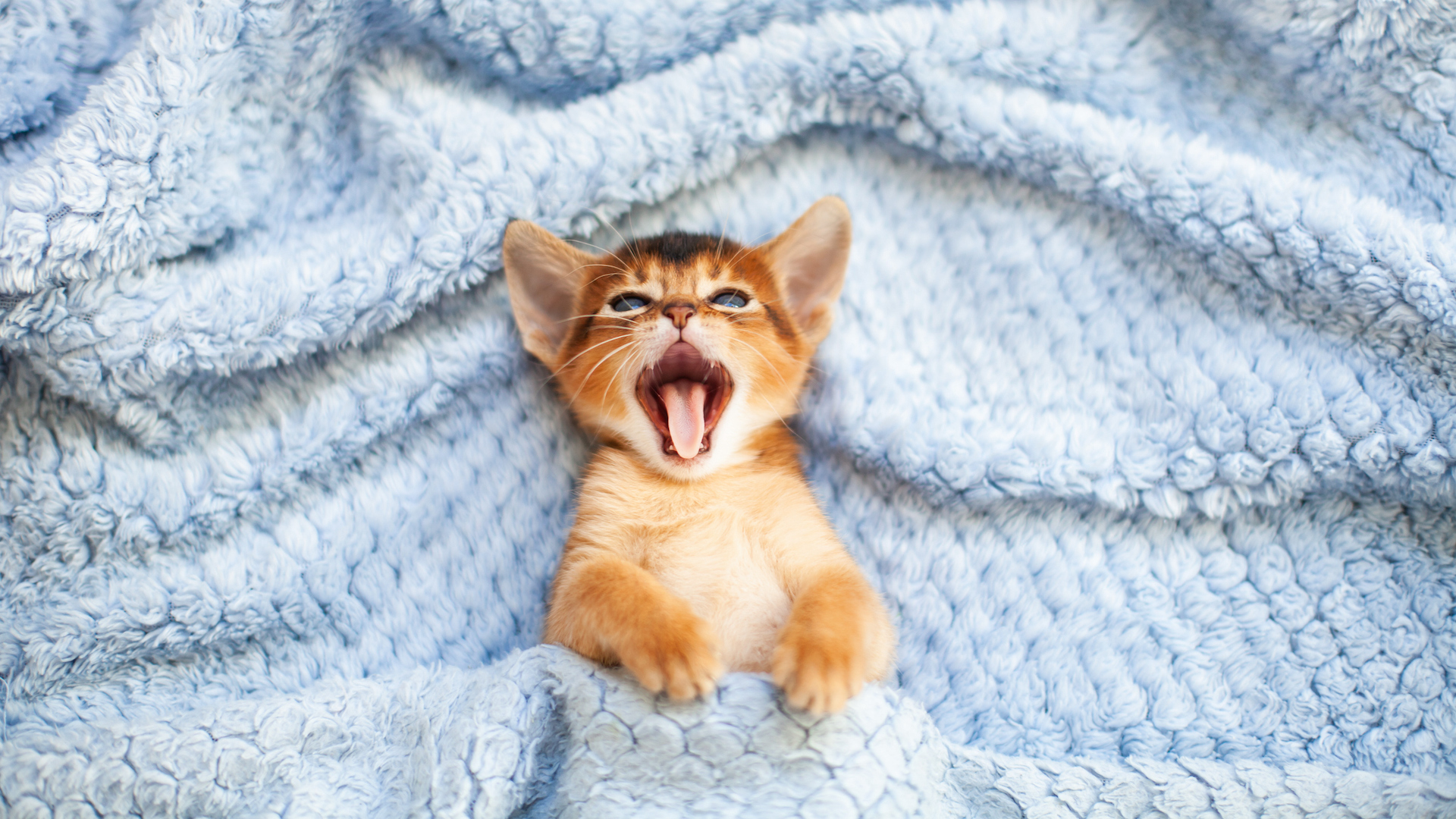
A fun fact about kittens is that they are often born with different color coats than what they will have as an adult cat. This is true with Abyssinian kittens.
They are born with darker coats, which go lighter as they age. It can take until the age of two years until their coat color is fully established.
6. Train for tricks
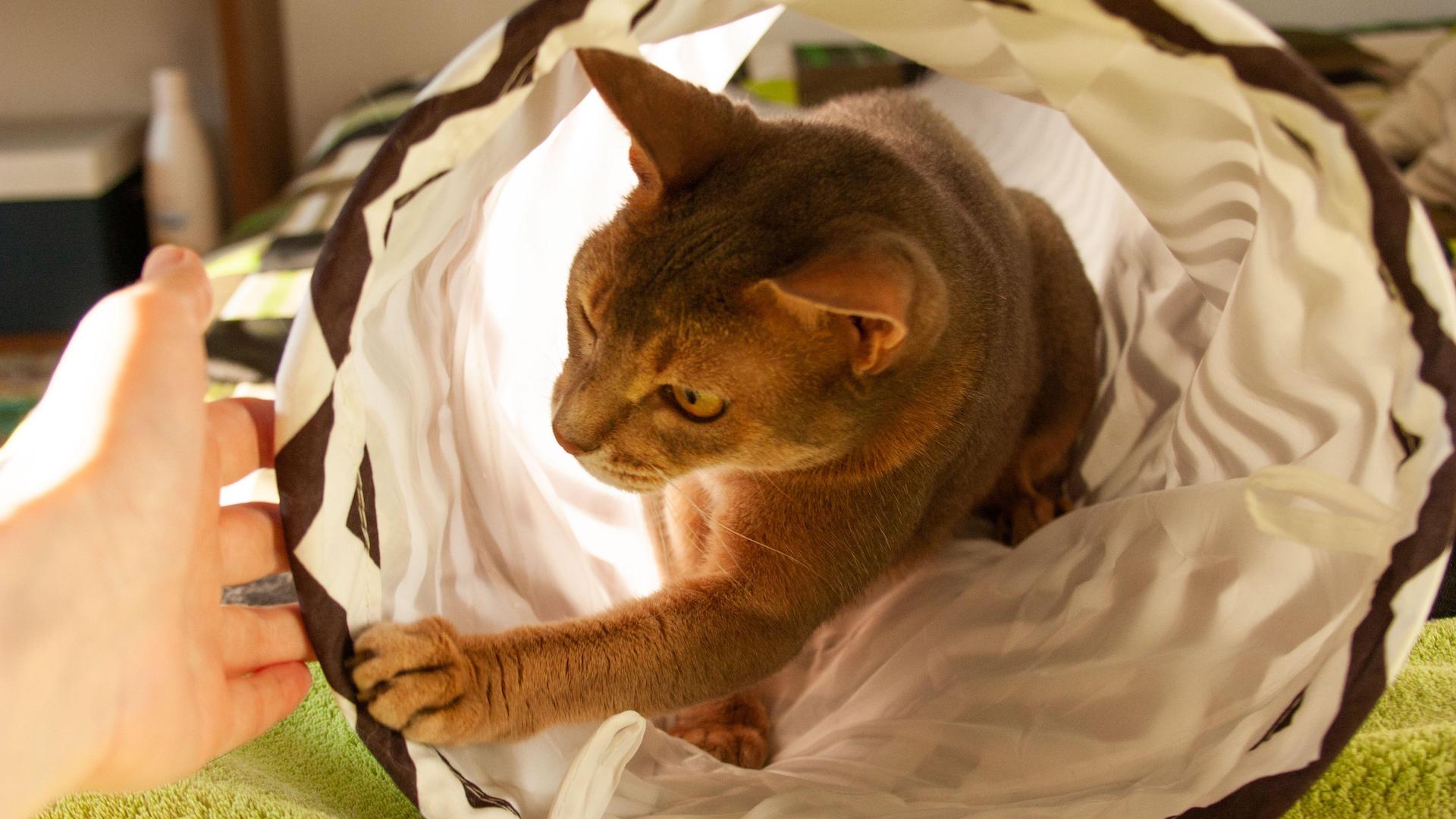
The Abyssinian is one of the easiest cat breeds to train. They are a highly intelligent breed that you can train to perform tricks. Learning obedience is just one of the many reasons to train your cat.
It is a useful tool to keep an independent cat under control! And that’s not all – many owners have taught their Abys to walk on a leash like a dog, and even do agility courses.
7. Scaling the heights
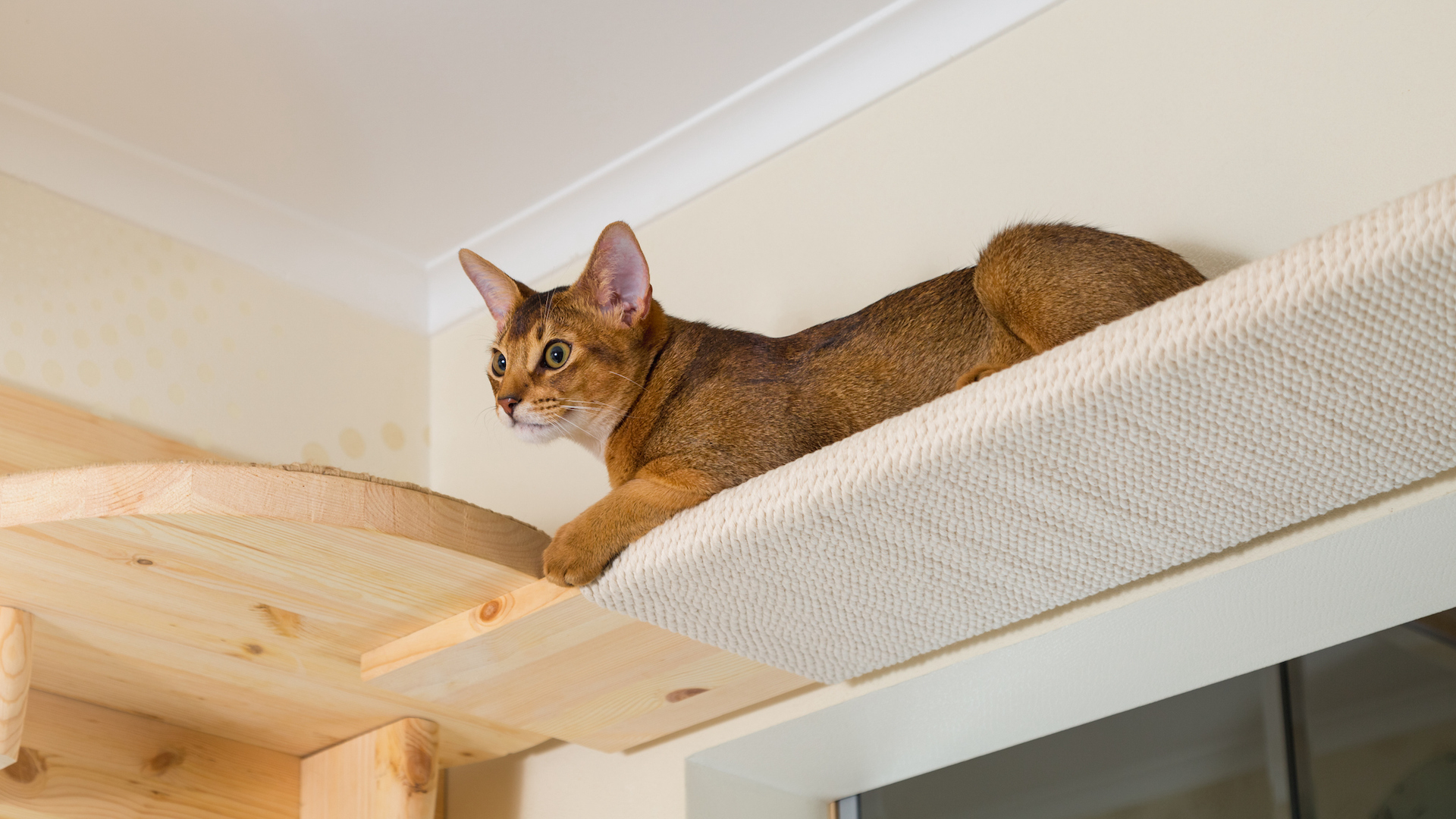
Many feline breeds love to jump, but the Abyssinian is an exceptional leaper – appropriate for a cat that looks like a spot-less cheetah. They love to spring up to the highest spot in the room as a vantage point to observe exactly what is going on in the household. Abyssinian owners tend to have a virtual jungle of the best cat trees and perches to keep their pets happy.
8. No white
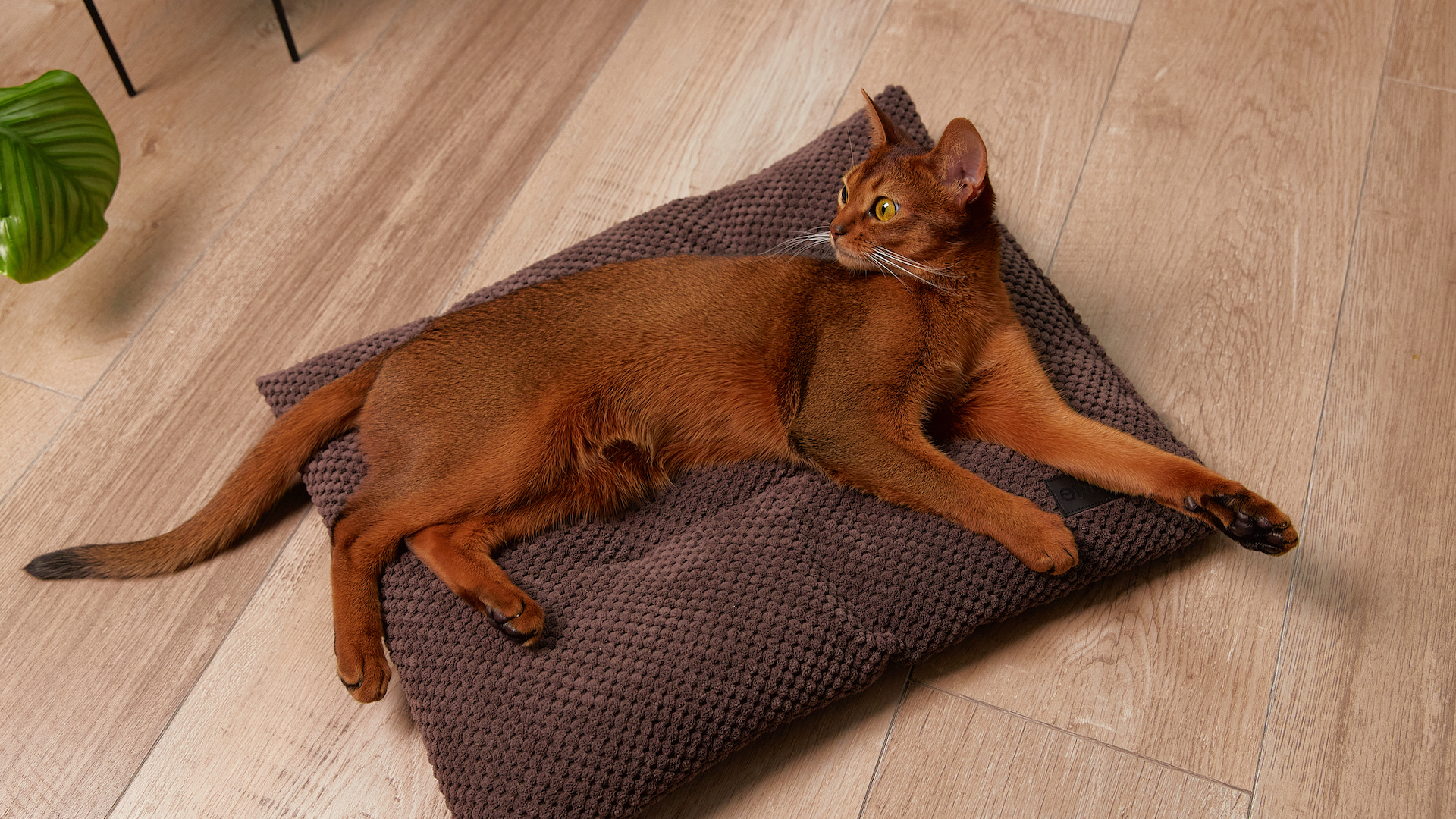
White markings, such as a locket, are not permitted according to the breed standard. Any white fur is considered undesirable in the show ring but is sometimes seen on the nostril, chin, or upper throat area.
9. The Midas touch
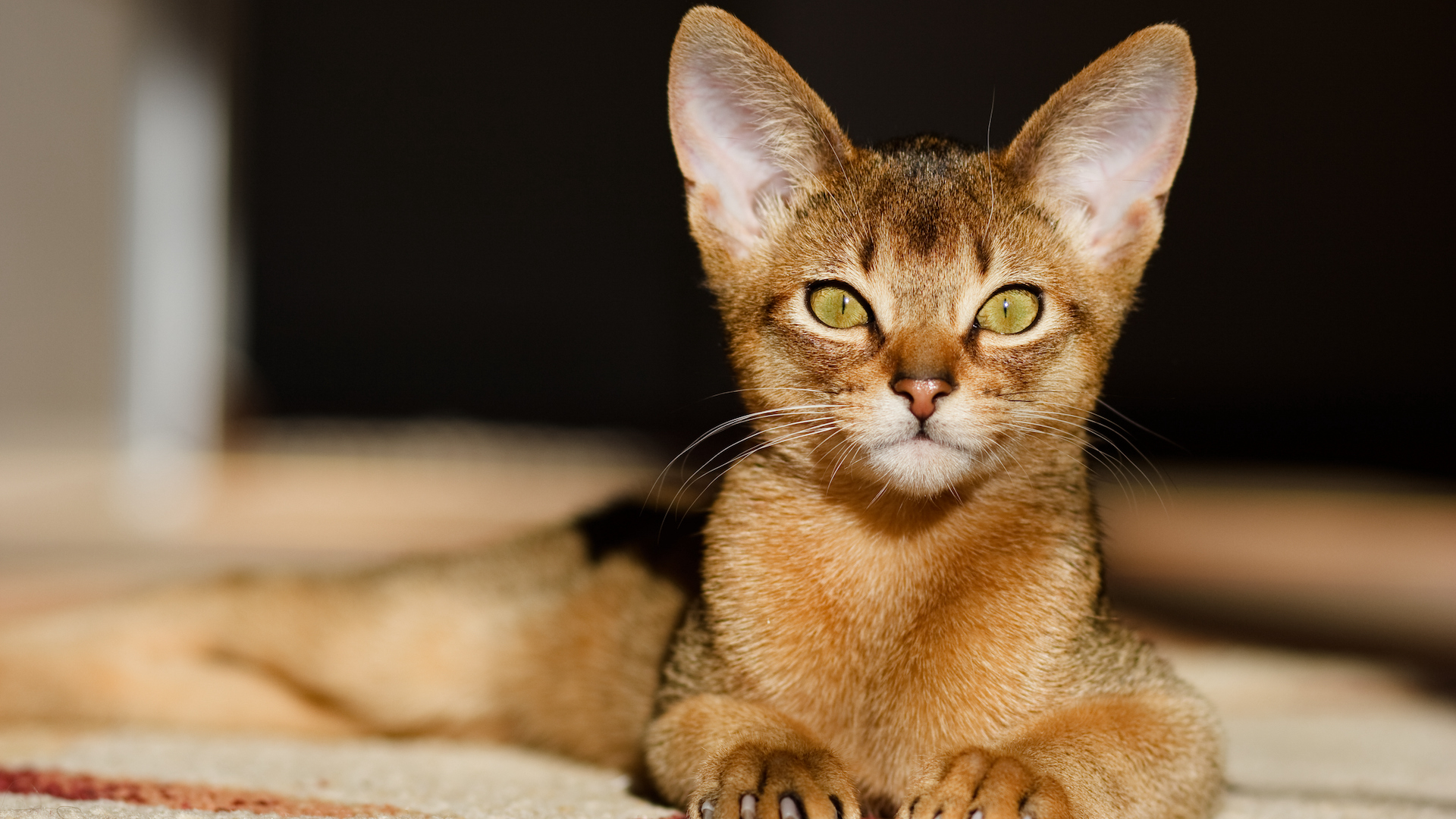
Could you get more bewitching than golden eyes? Abyssinians should have gold or green eyes, the richer and more intense the color the better. They are almond-shaped, accentuated by a fine dark line like mascara, and encircled by a lighter-colored area. We should watch and learn from feline make-up tricks...
10. Family cats

Abyssinians do well as family cats because they tend to enjoy human company, including children. They are busy, high-energy cat breeds that will want to play with you and who relish an environment to match.
11. War survivors
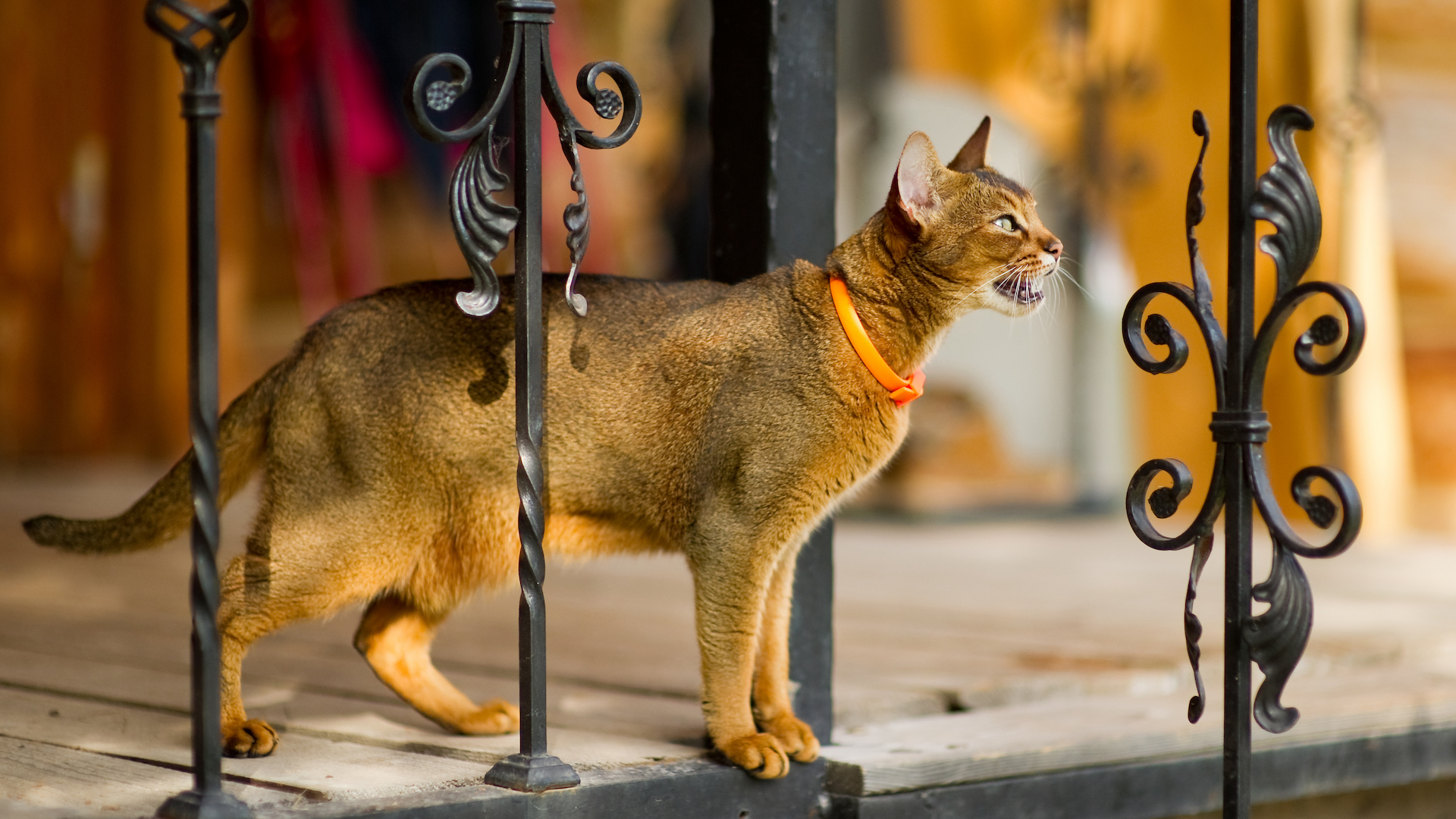
The breed very nearly became extinct during World War II, when London was bombed and many Abys either died or were abandoned. It was reported that there were only a dozen left in Britain, and some lines had indeed died out completely. However, with the British remnant and a few that were imported into the US, the breed was rekindled.
12. Wildcat
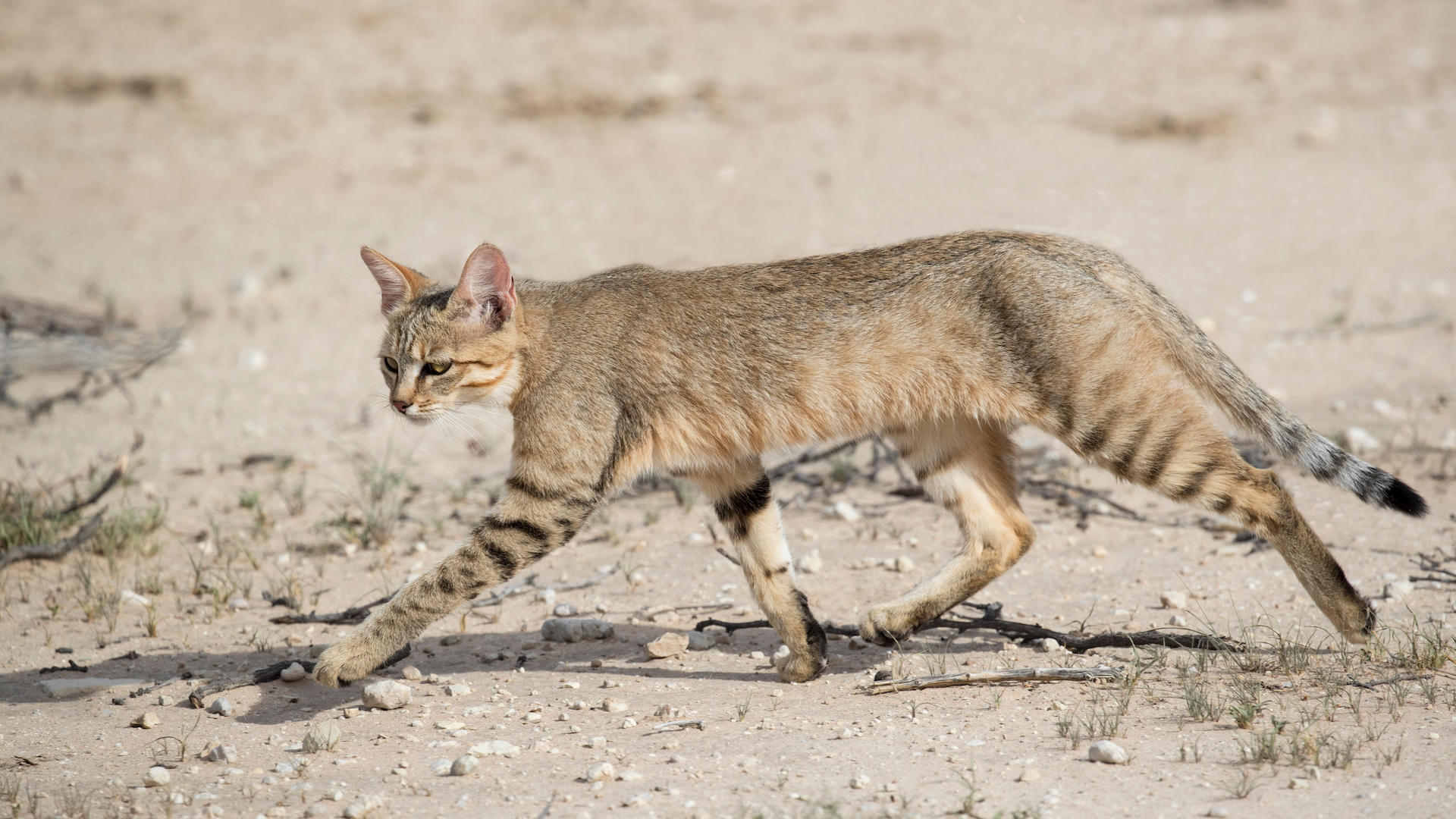
Although the Abyssinian is a wonderful domestic cat, who really thrives indoors rather than out, they certainly have a touch of the wild side. Today’s Abyssinian, with its large cupped ears and lithe, athletic physique, bears more than a passing resemblance to the African Wild Cat (Felis Libyca), and if you watch it climb and jump, you can imagine it thriving in the jungle!
13. Listen up
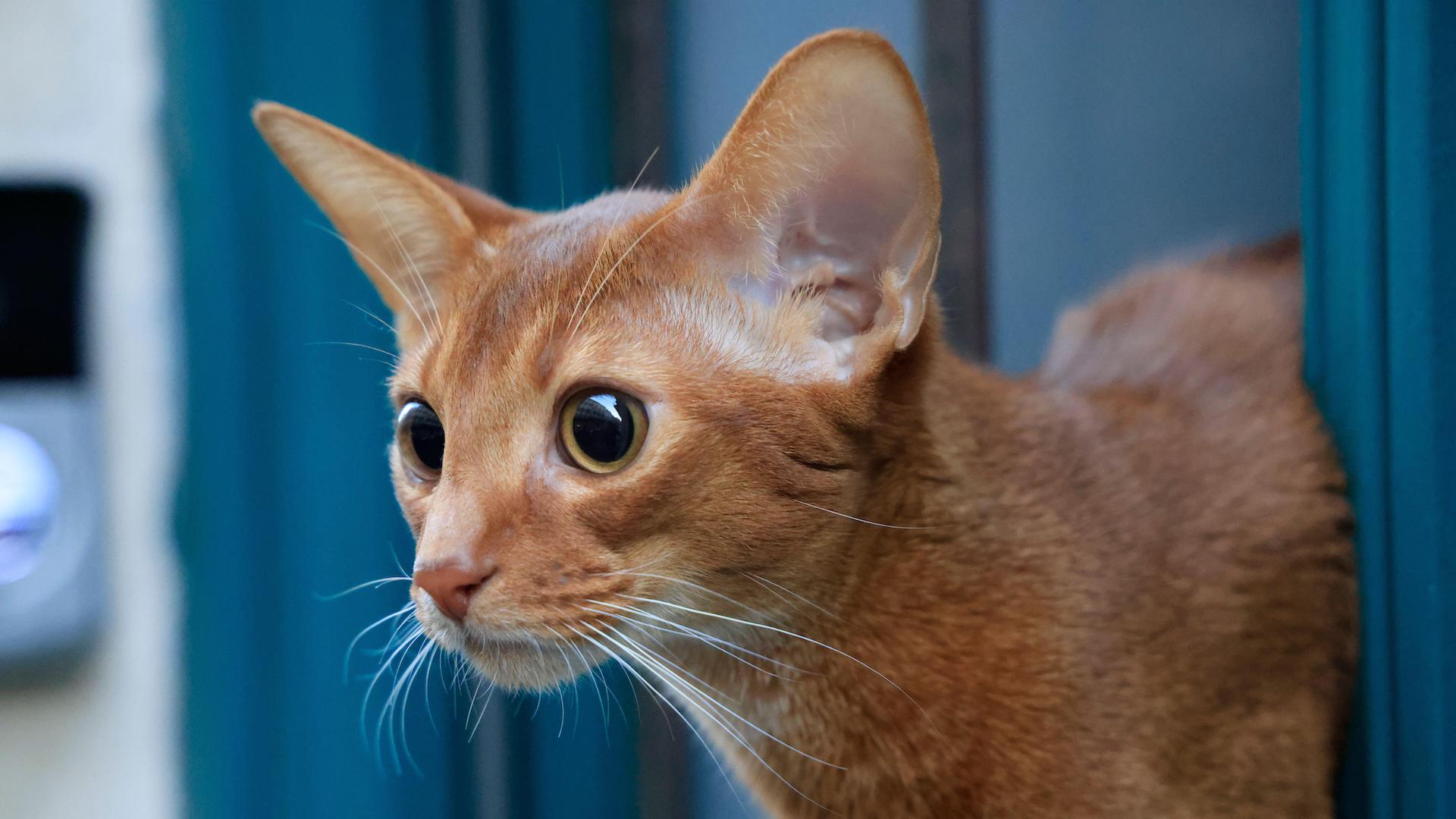
Abyssinians are known to have large ears, which are typically alert, as though they are listening attentively, though the jury is out on this one. An endearing feature is the different colored tips – usually black on a ruddy, chocolate brown on cinnamon, slate blue on a blue, and light cocoa on a fawn.
14. On tiptoes
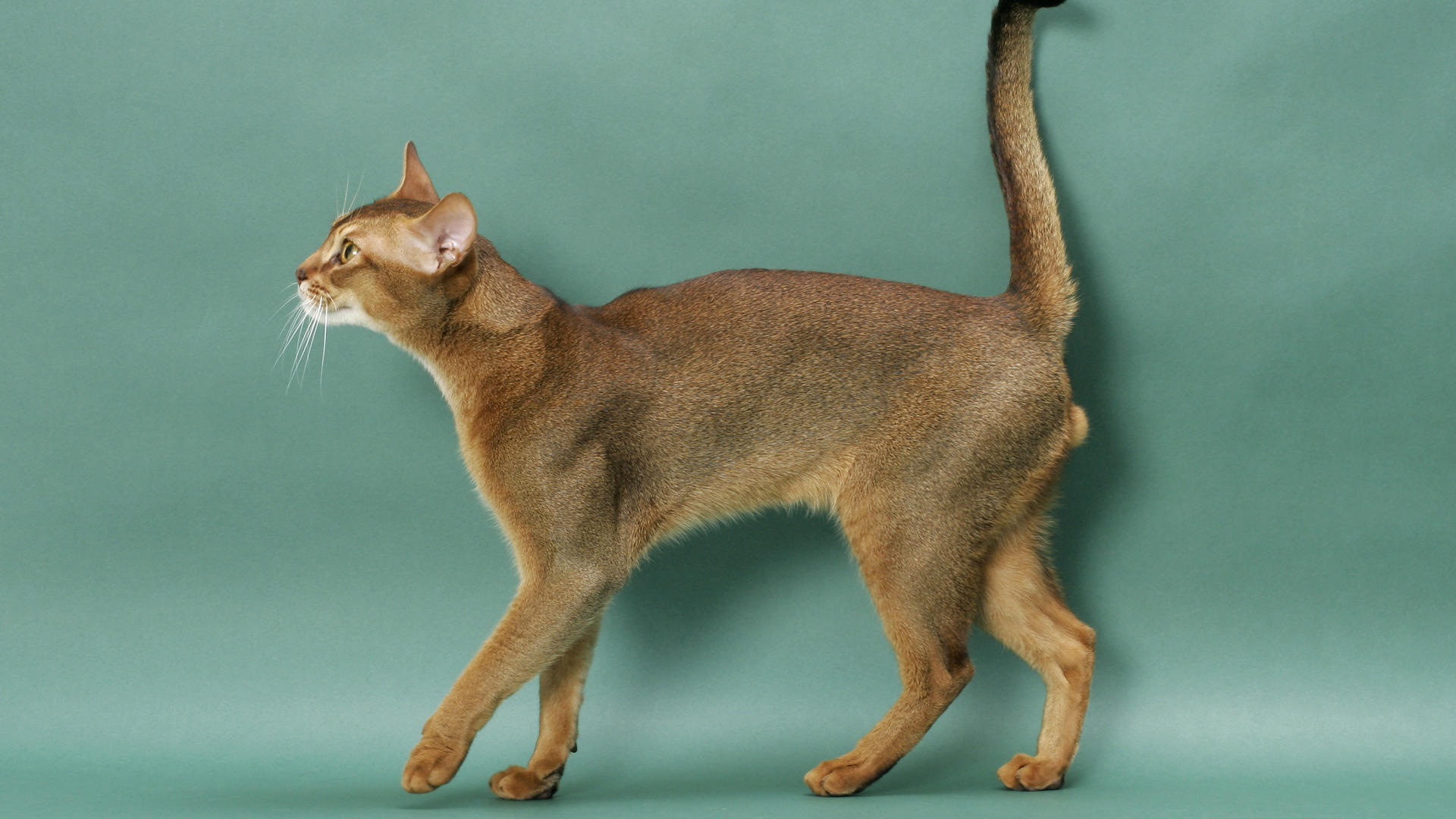
An Abyssinian stands well off the ground, on small, compact paws, which gives the impression that they are standing on tiptoe – ready to launch into whatever energetic enterprise takes their fancy.
15. Canine playmates
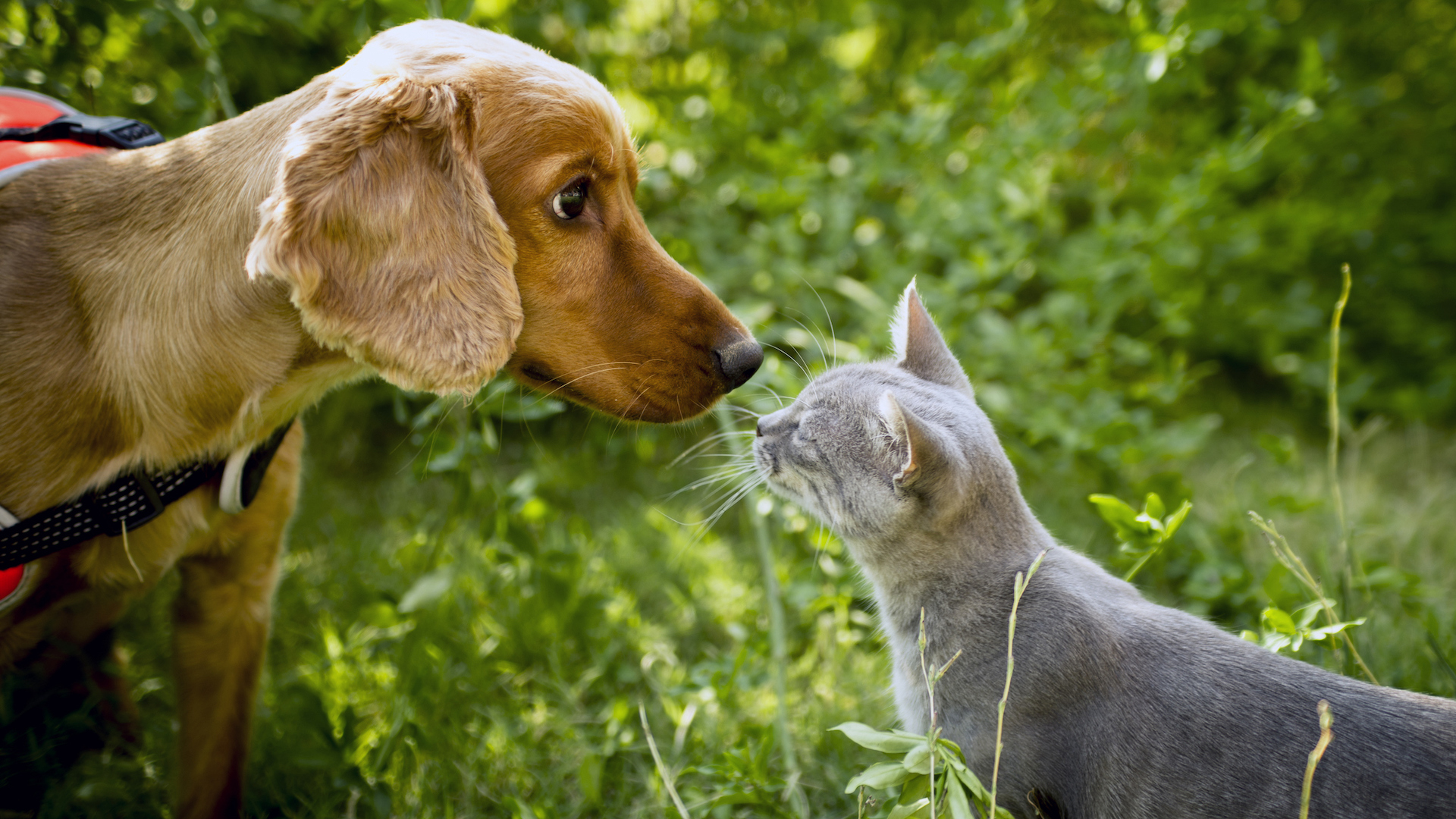
As cats go, this lively and expressive breed is widely reported to make a good companion for dogs in the home. Many believe they even prefer dogs to other cats as playmates.
They would rather not be alone, instead enjoy joining in whatever family activities are on offer, so if a dog is to be their playmate, so be it. Bold and adventurous, curious and confident, the Abyssinian is likely to be a good match for any pup.
16. Velcro cats
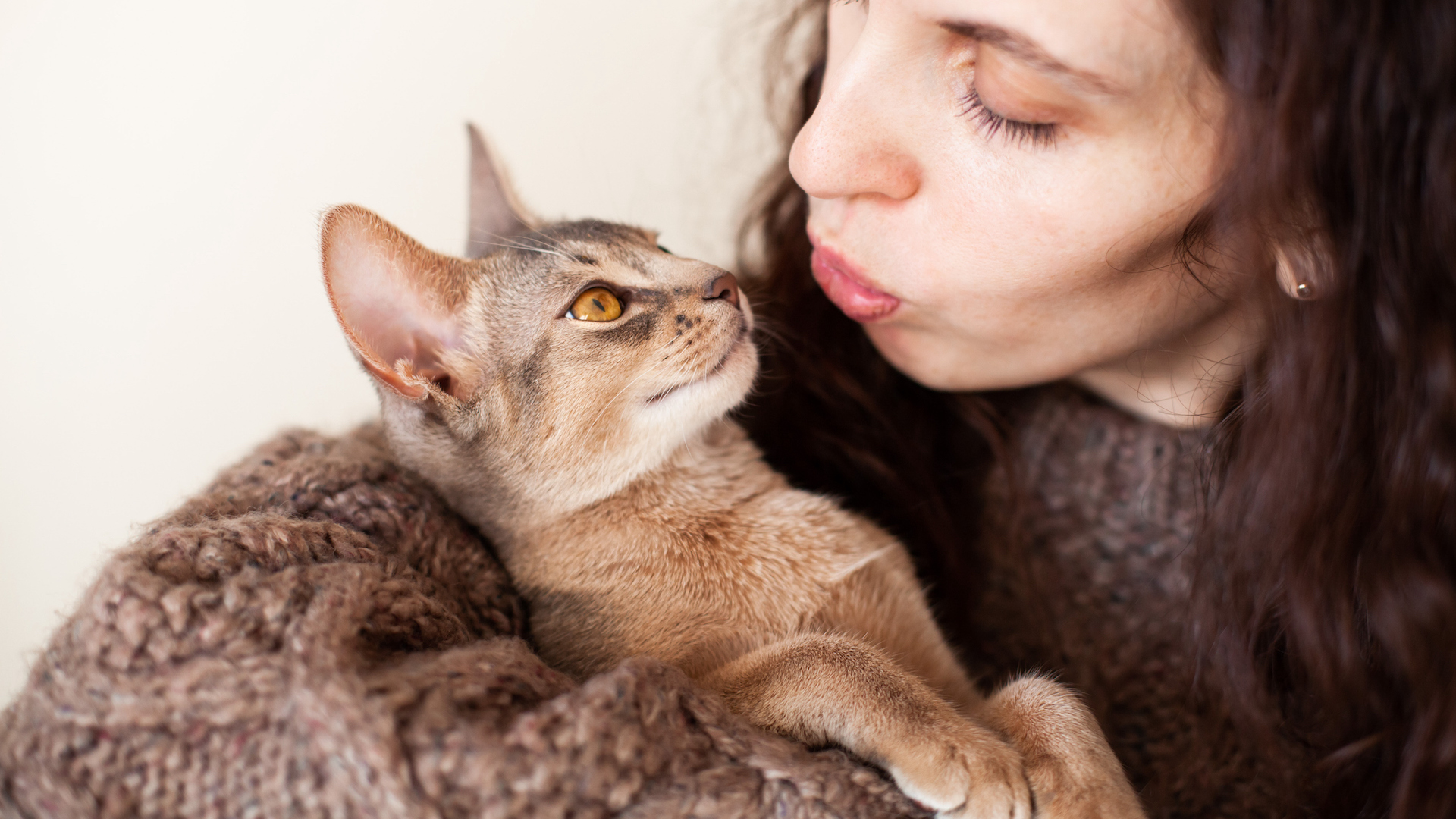
Abyssinians do love to follow you around, keeping tabs on all the goings-on in the household, earning them the nickname the Velcro Cat. They are as affectionate as cats come, and will even follow you into the bathroom if you don’t lay down some privacy laws.
17. If a dog was a cat...
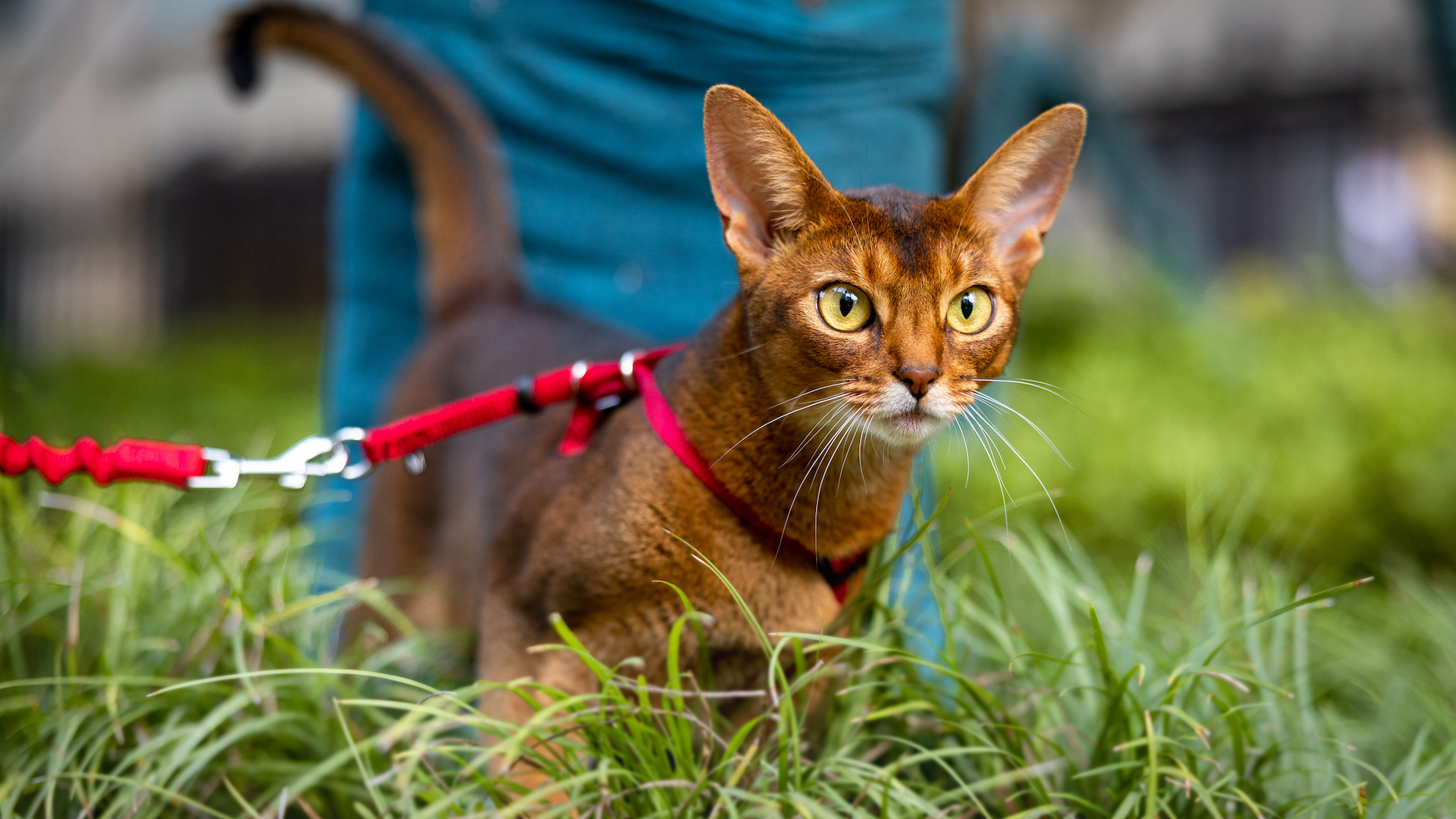
If a dog was a cat, it would be an Abyssinian. They form a dog-like attachment to their owners. Like their canine counterparts, Abyssinians can not only be taught to play tricks, but they’ll carry around their favorite toys, try their paw at fetch, and even agility courses.
Knowing how to leash train a cat is well worth it with this breed as they'll happily go for a stroll with you. Is this breed really a cat or a dog?
18. Clowning around
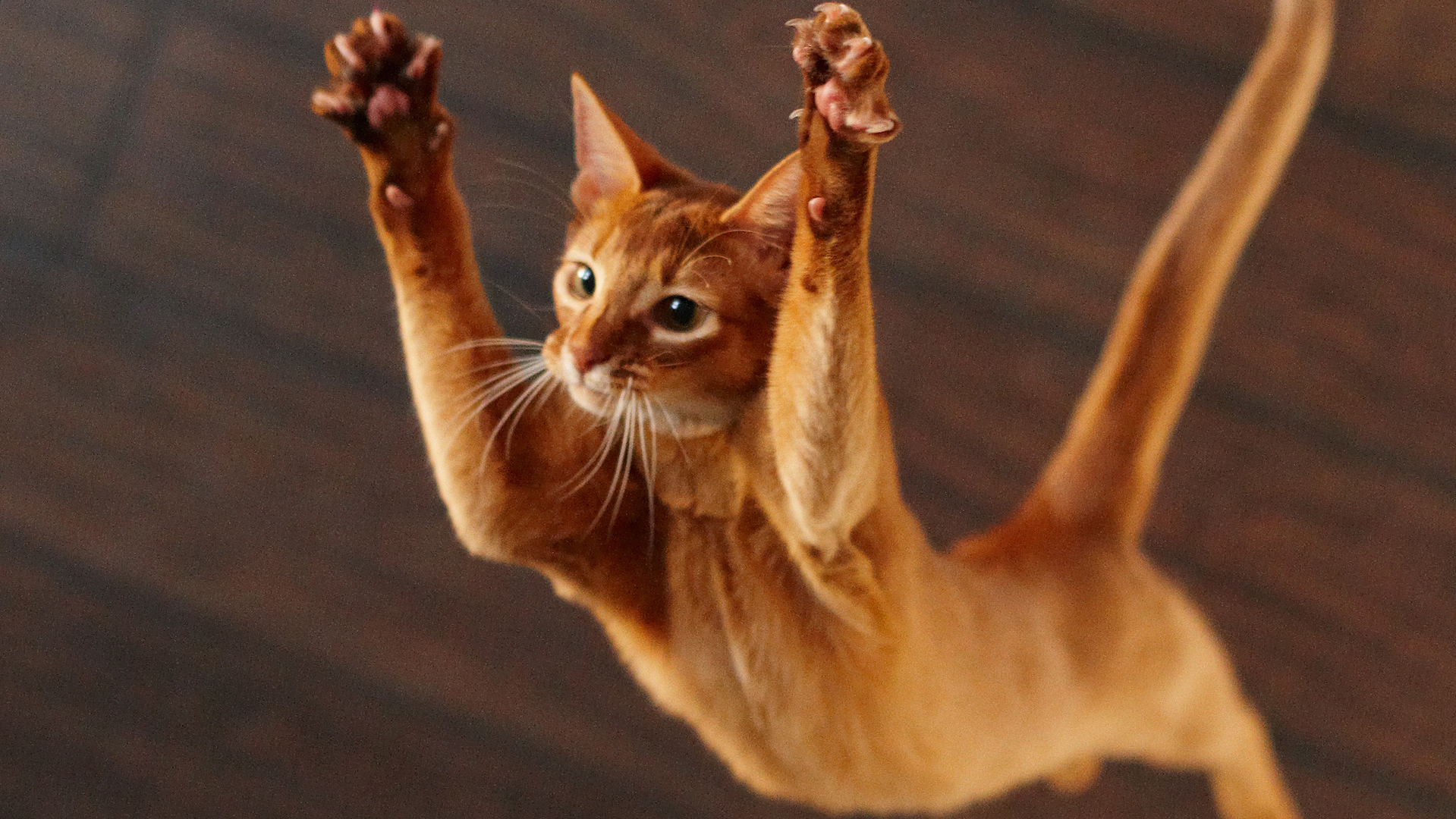
Abyssinians are super-energetic, agile, and very playful, giving them a reputation as feline clowns. They love to impress you with their acrobatic antics, jumping up to the highest shelves, and perching on your shoulder – earning them the nickname the Aby-silly-ans. They certainly deserve their place among the most playful cat breeds.
19. Collector of nicknames
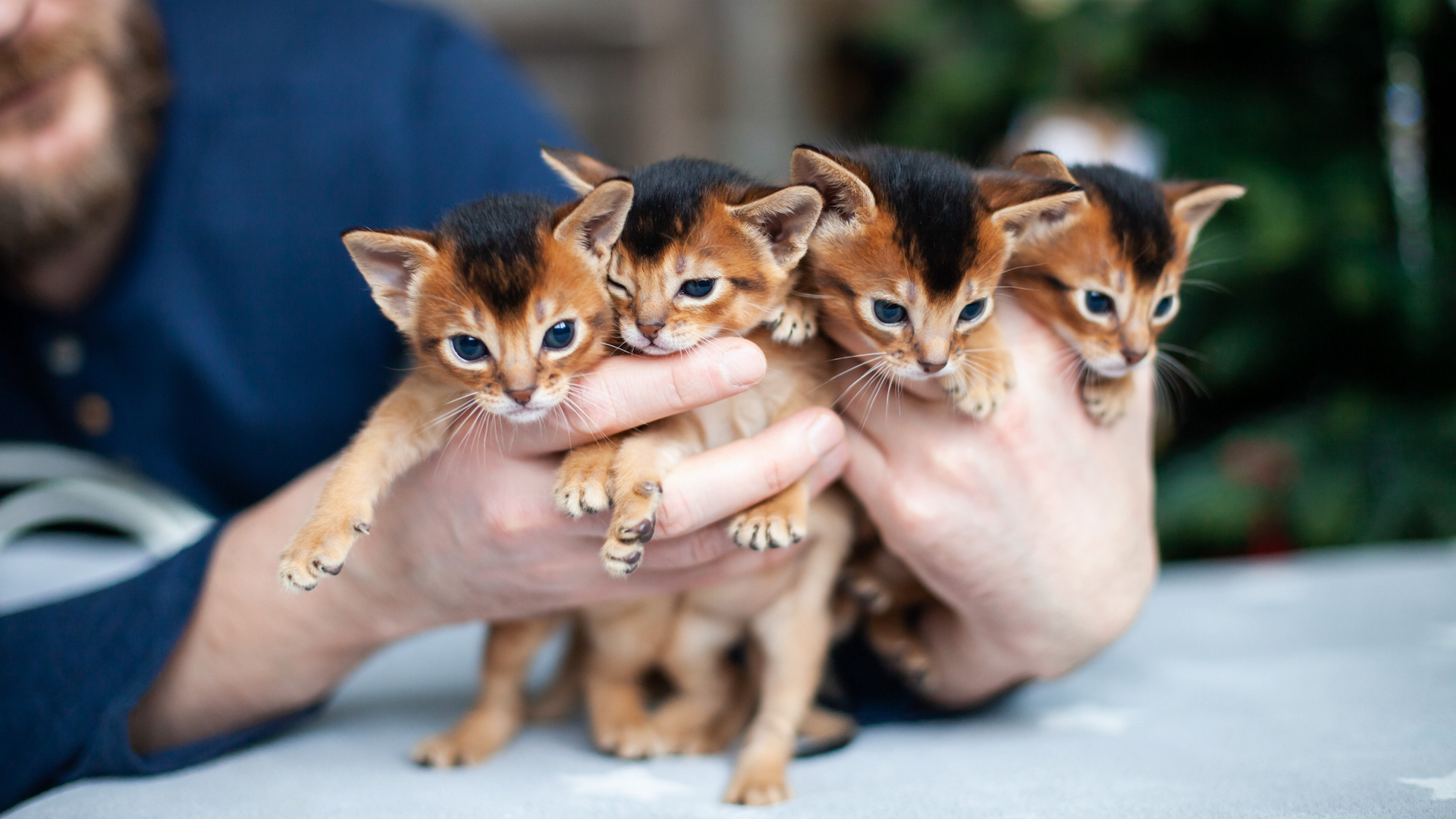
Big personalities tend to attract endearing nicknames and the Abyssinian has collected its fair share: Velcro Cat, Aby-silly-an, Abys, Grabby-Abys, Clowns of the Cat Kingdom. Never mind their official nicknames, just think how much fun you’d have naming these little characters.
20. Chirpy cat
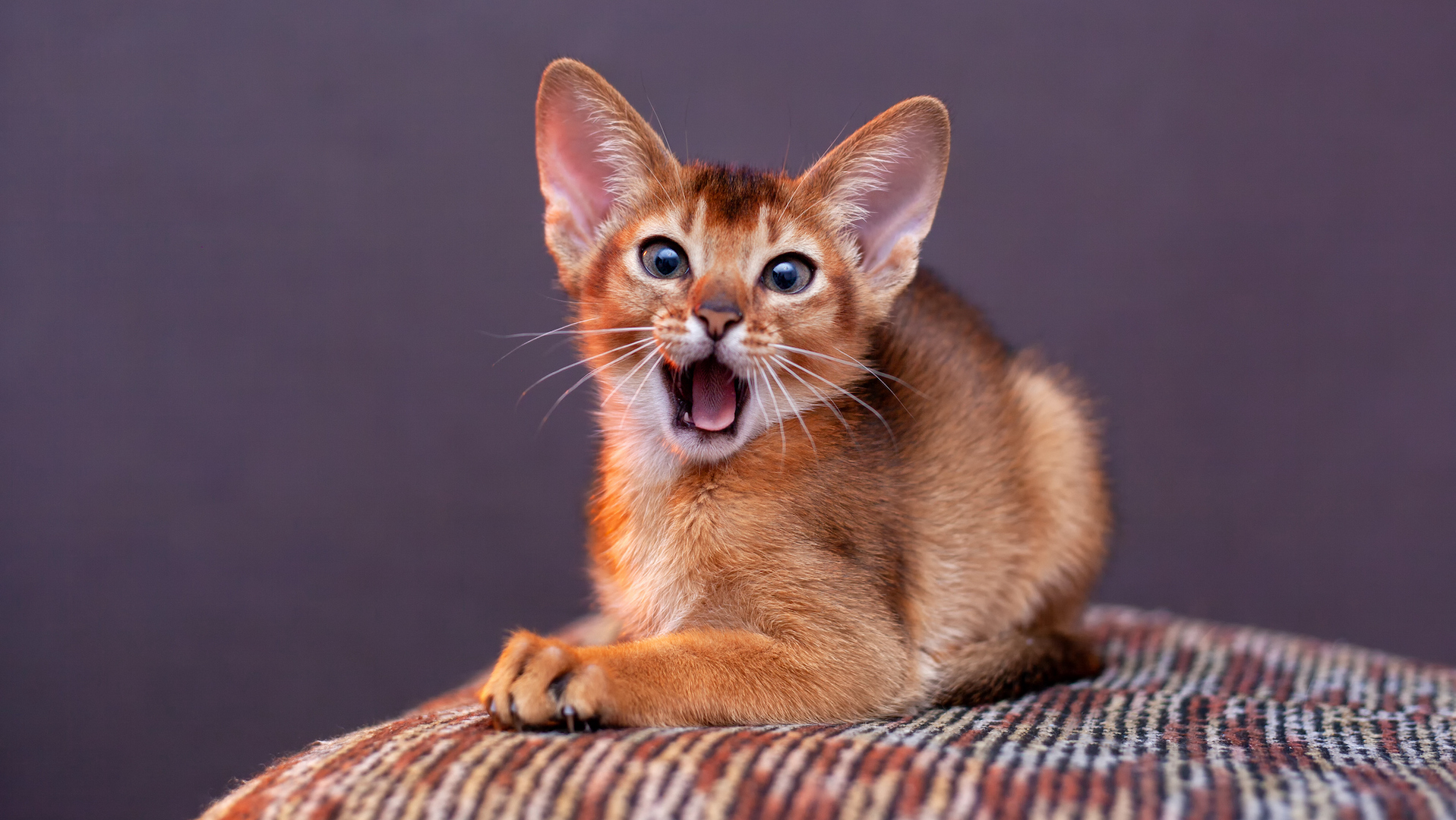
Abyssinians are not typically noisy cats, although they are quite chatty and communicative. Rather than yowling or a loud meow, they have a distinctive chirrup. And of course, they purr with contentment.
21. Abyssinian vs Somali
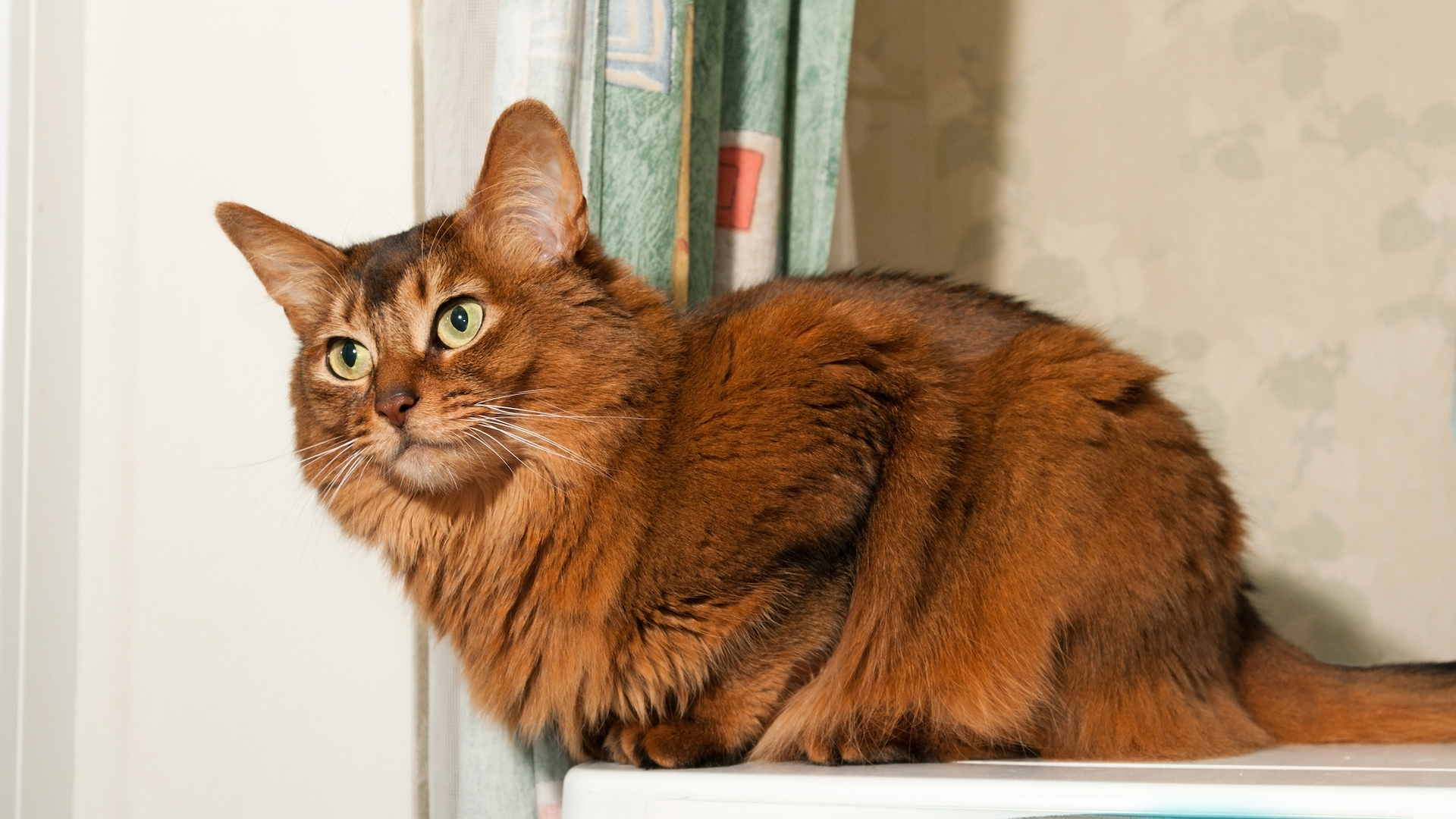
The Somali cat is genetically and physically very similar to the Abyssinian, only it is long-haired. It is also available in the same colors and has similar characteristics, but thanks to a recessive gene in the Abyssinian causing the long hair they are recognized as separate breeds and have been since 1979.
22. A blend of breeds
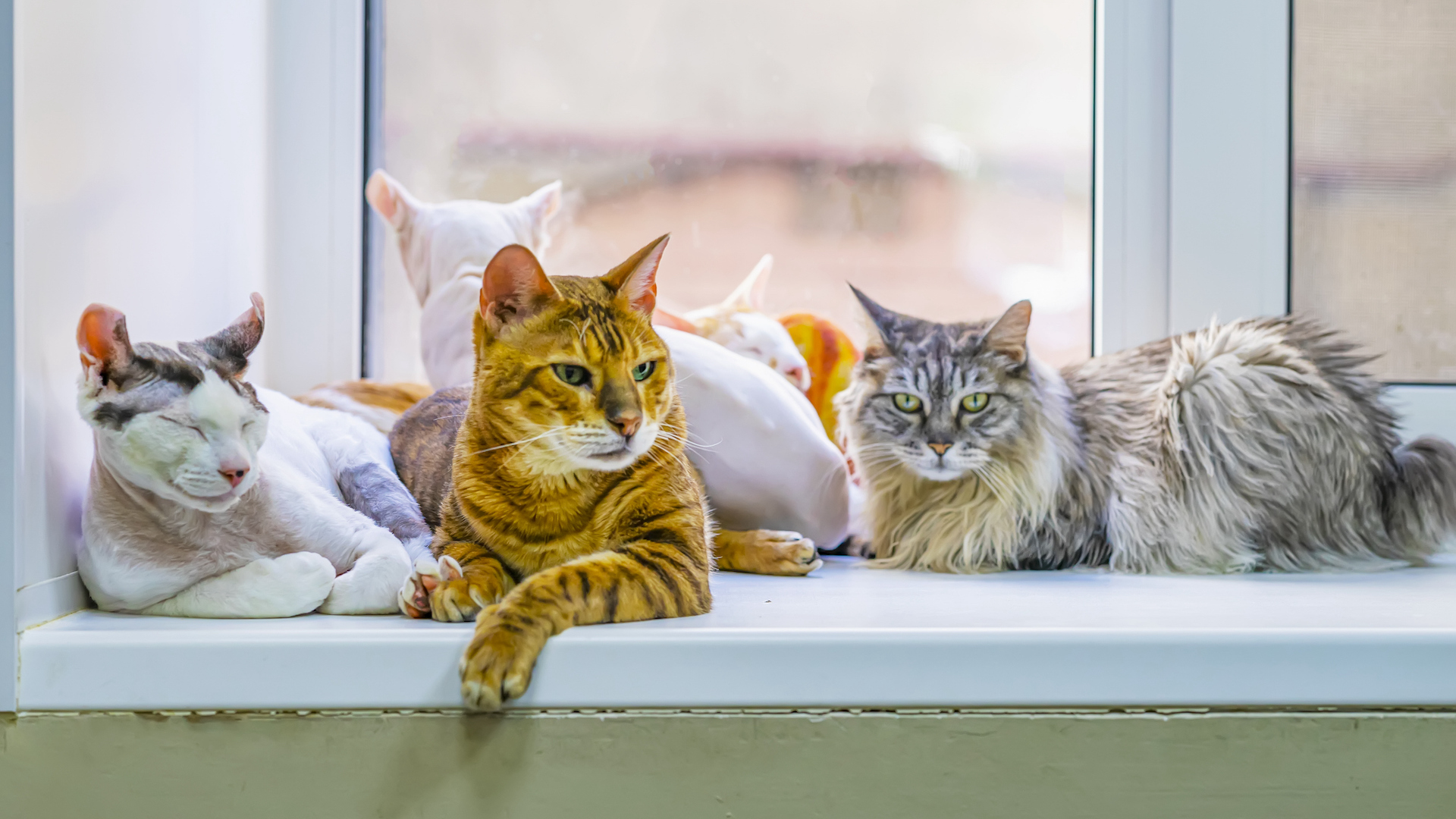
Although the Abyssinian cat is considered to have ancient origins, the modern Aby nonetheless owes its ancestry to several different breeds, including the Siamese, burmese, and Russian blue, and probably a few more, though history does not relate.
Above all, it is a man-made breed, with British domestic cats being crossed with imported cats whose precise ancestry remains a mystery.
23. Popularity stakes
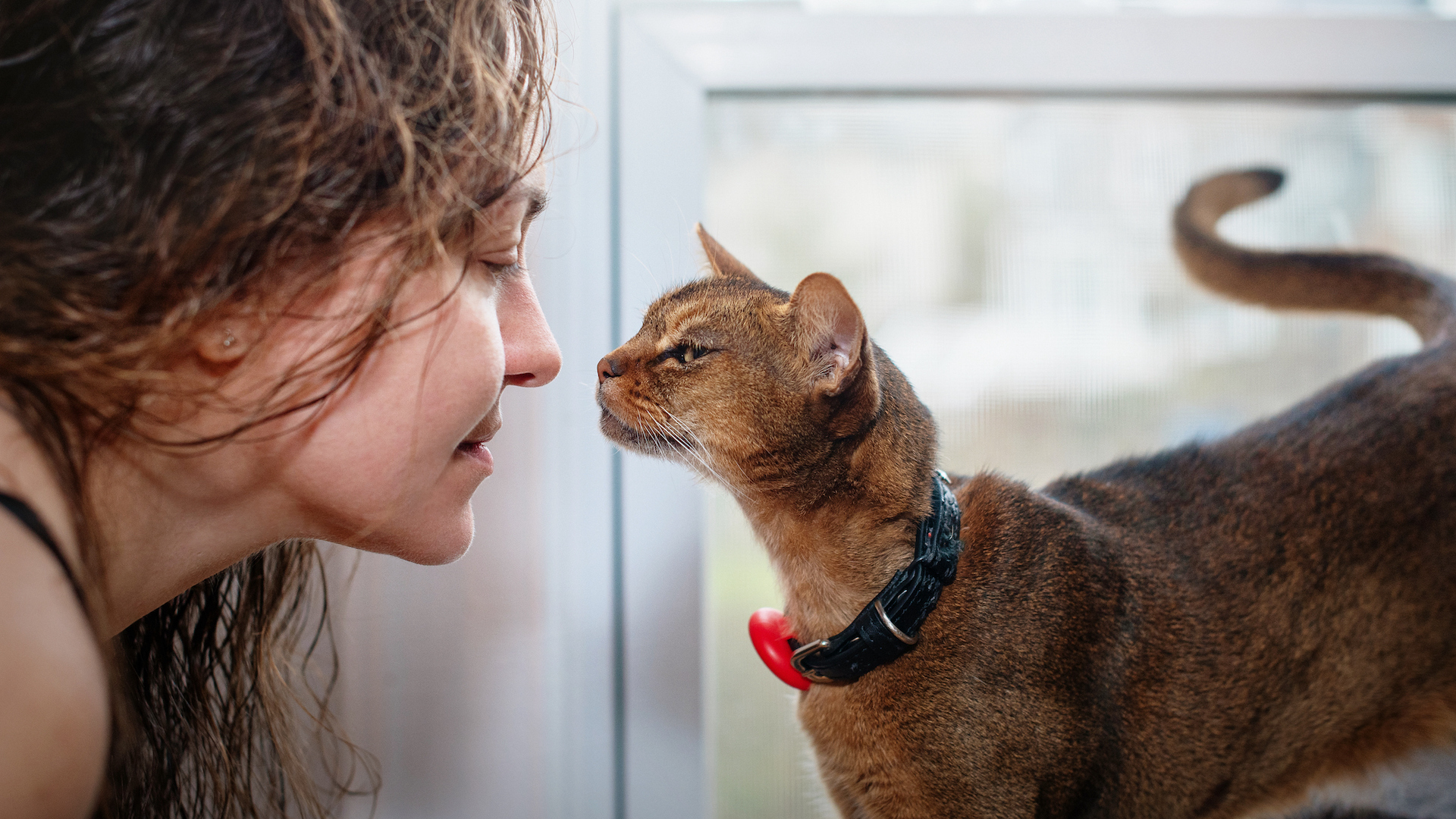
The Abyssinian is one of the most popular feline breeds, featuring in the top 10, according to the Cat Fanciers’ Association.
Back in 1893, before the formal registration of cats had even begun, cat judge John Jennings predicted that “the Abyssinian promises to increase in popularity”. How right he was.
24. Long, tipped tails
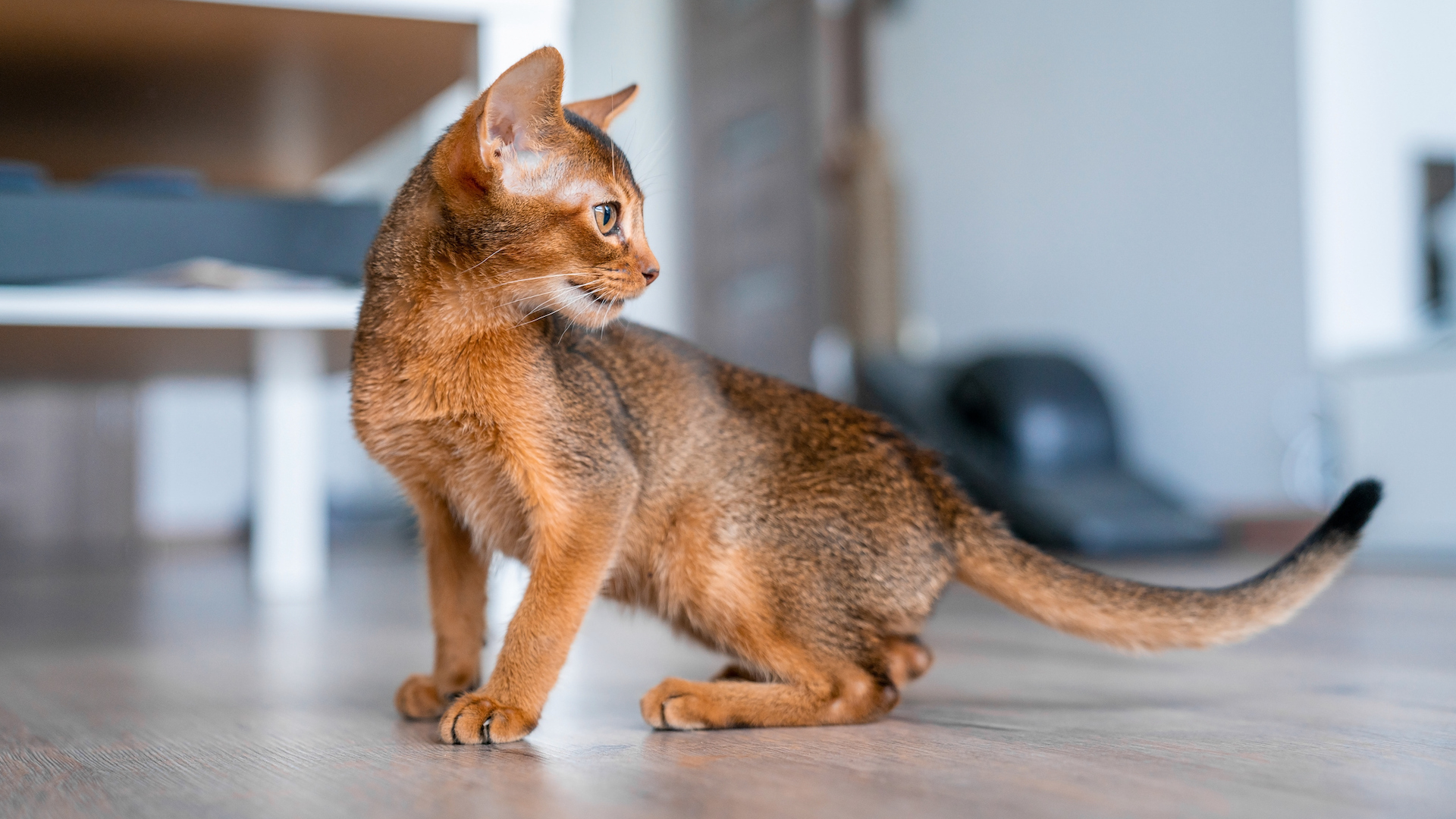
The darker ticking color often goes along the spine and should end with a solid tail tip of that color. The tail should be long enough to reach the cat’s shoulders.
25. Taxidermized exhibit
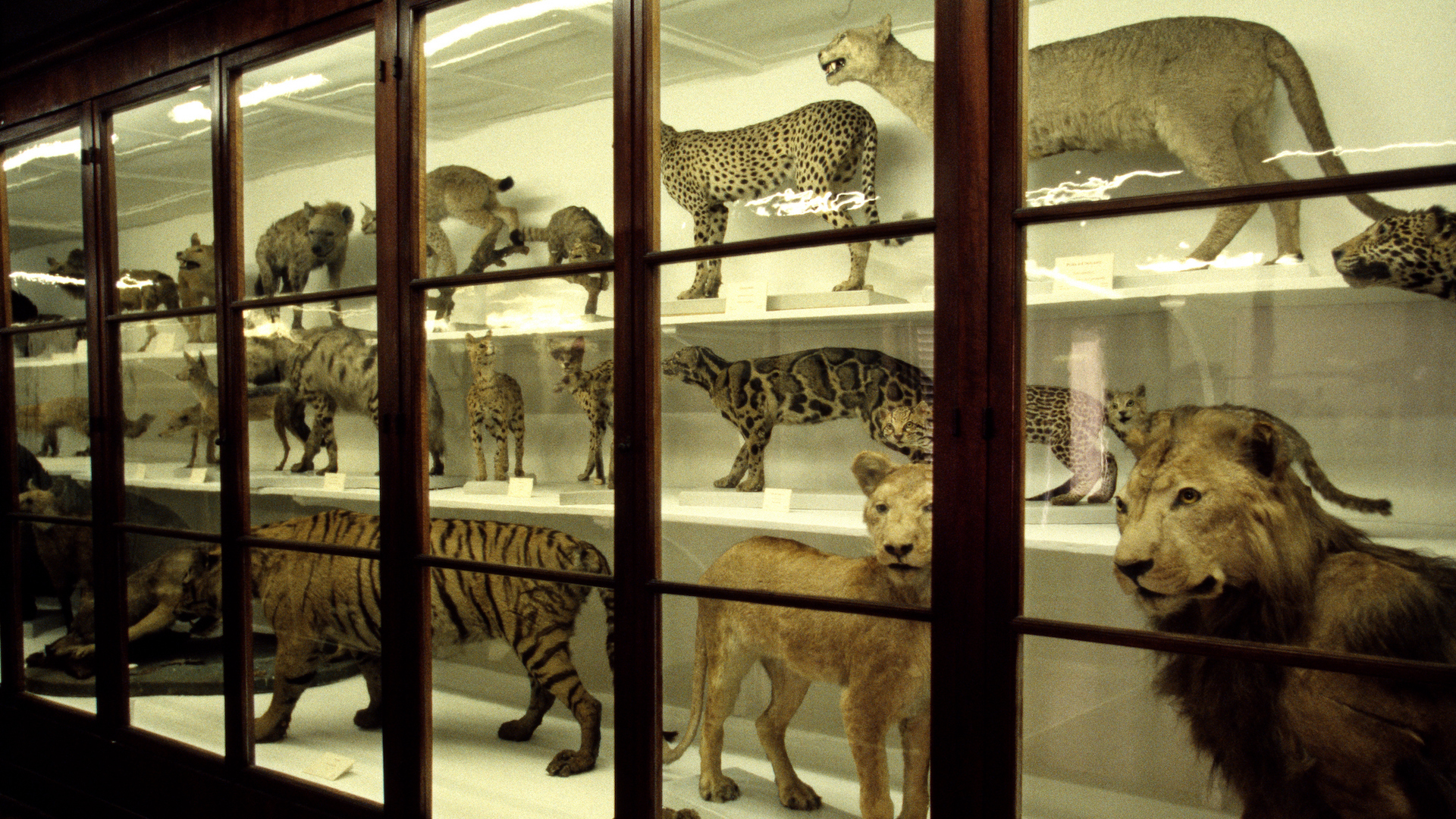
The earliest identifiable example of an Abyssinian cat is stuffed. It is exhibited in the Leiden Zoological Museum in the Netherlands, having been bought in around 1835. It is labeled as “Patrie, domestica India”, giving weight to the theory that this breed originated in Asia rather than Abyssinia.
26. No lone ranger
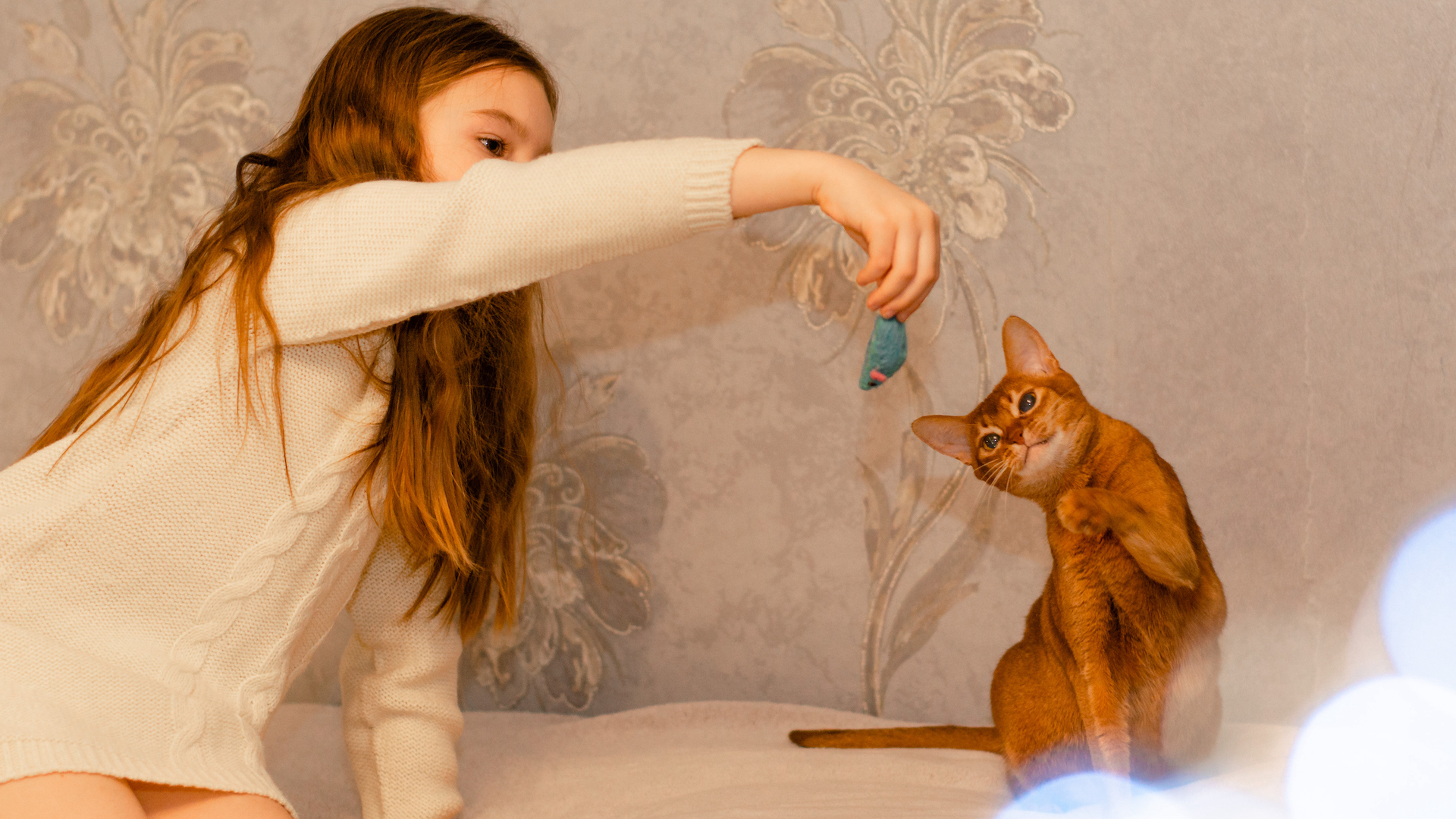
While many cats are independent, the Abyssinian is not a breed to leave alone for hours on end. Owners report their Abys getting depressed without constant company and attention.
They are natural extroverts, playful and fun, and like many energetic characters, they easily get bored or lonely if left to amuse themselves. Having some of the best automated cat toys can help prevent boredom.
27. Affectionate on their terms
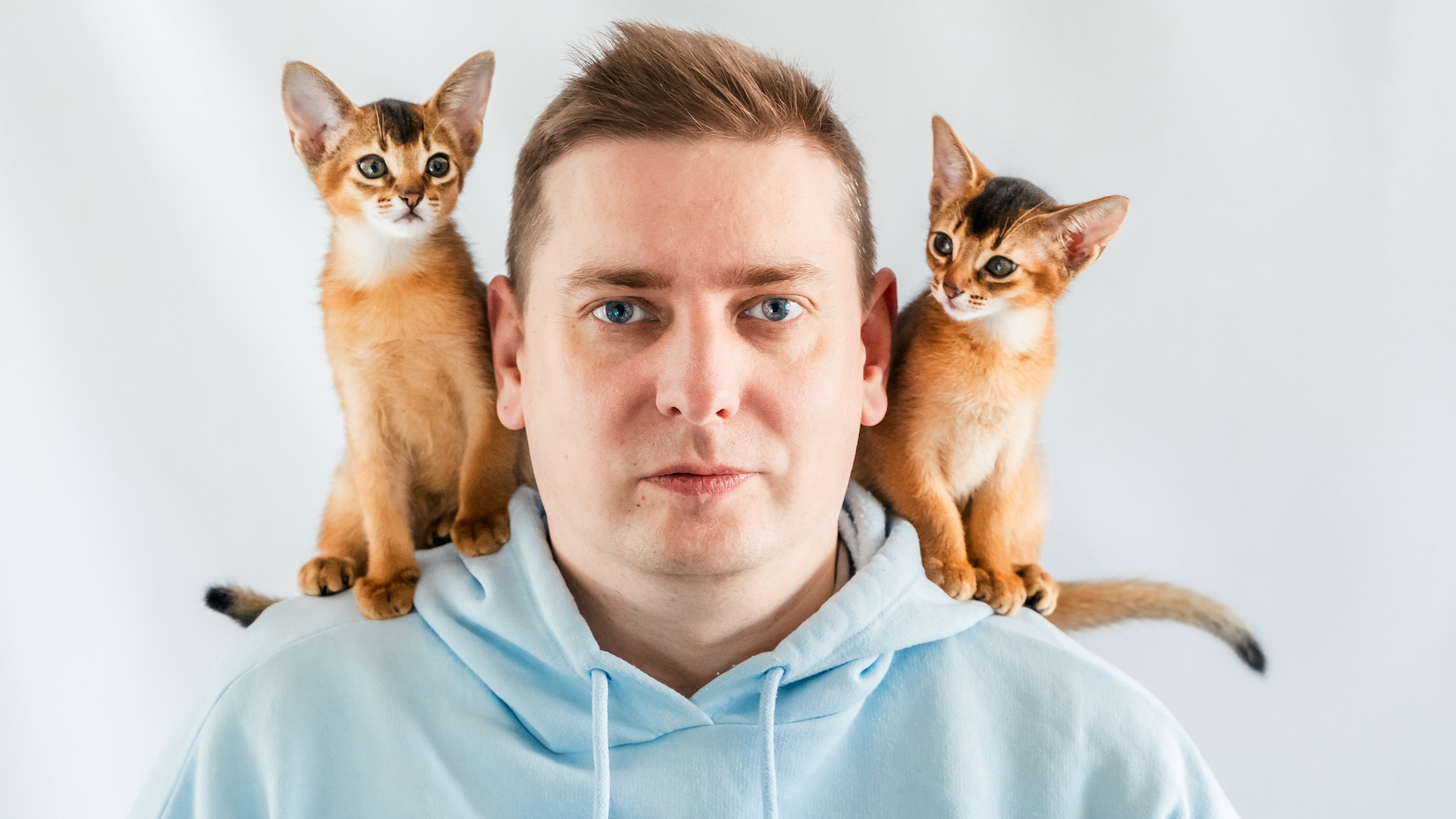
A surprising thing about the Abyssinian is that while they are one of the most affectionate cat breeds, who won’t let you out of their sight, are unstintingly loyal, and love to perch on your shoulder, they are not lap cats!
They might crave your attention, get under your feet, and want to curl up beside you – but not on you. And they don’t want to be carried around, thank you, they’re far too agile and athletic for that.
28. Little or large?
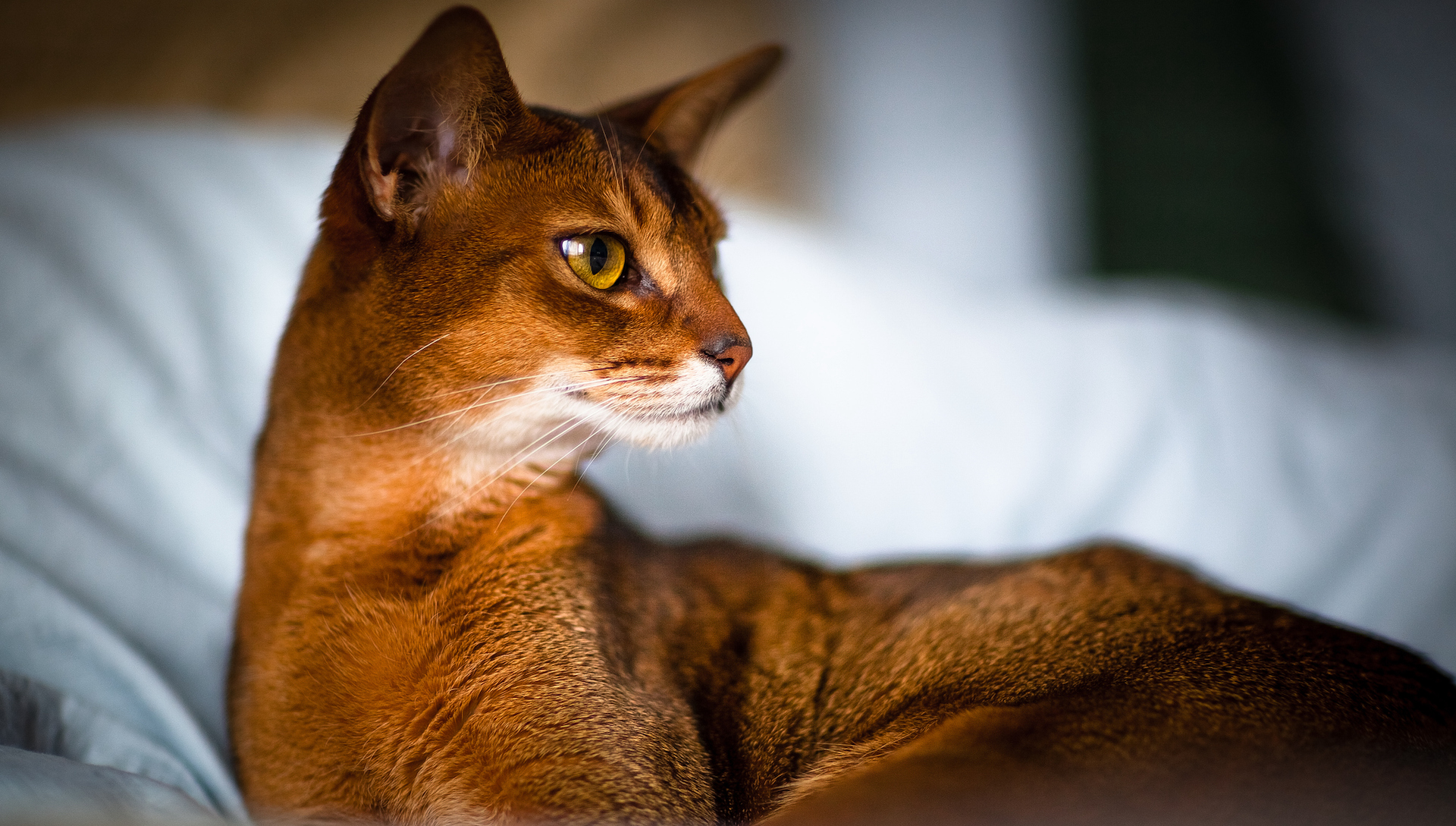
Technically, the Abyssinian is a medium-sized cat and indeed fairly long, tall, and muscular, but due to their elegant and slender build and long, thin legs – they typically seem smaller than their actual size.
29. Hollywood star
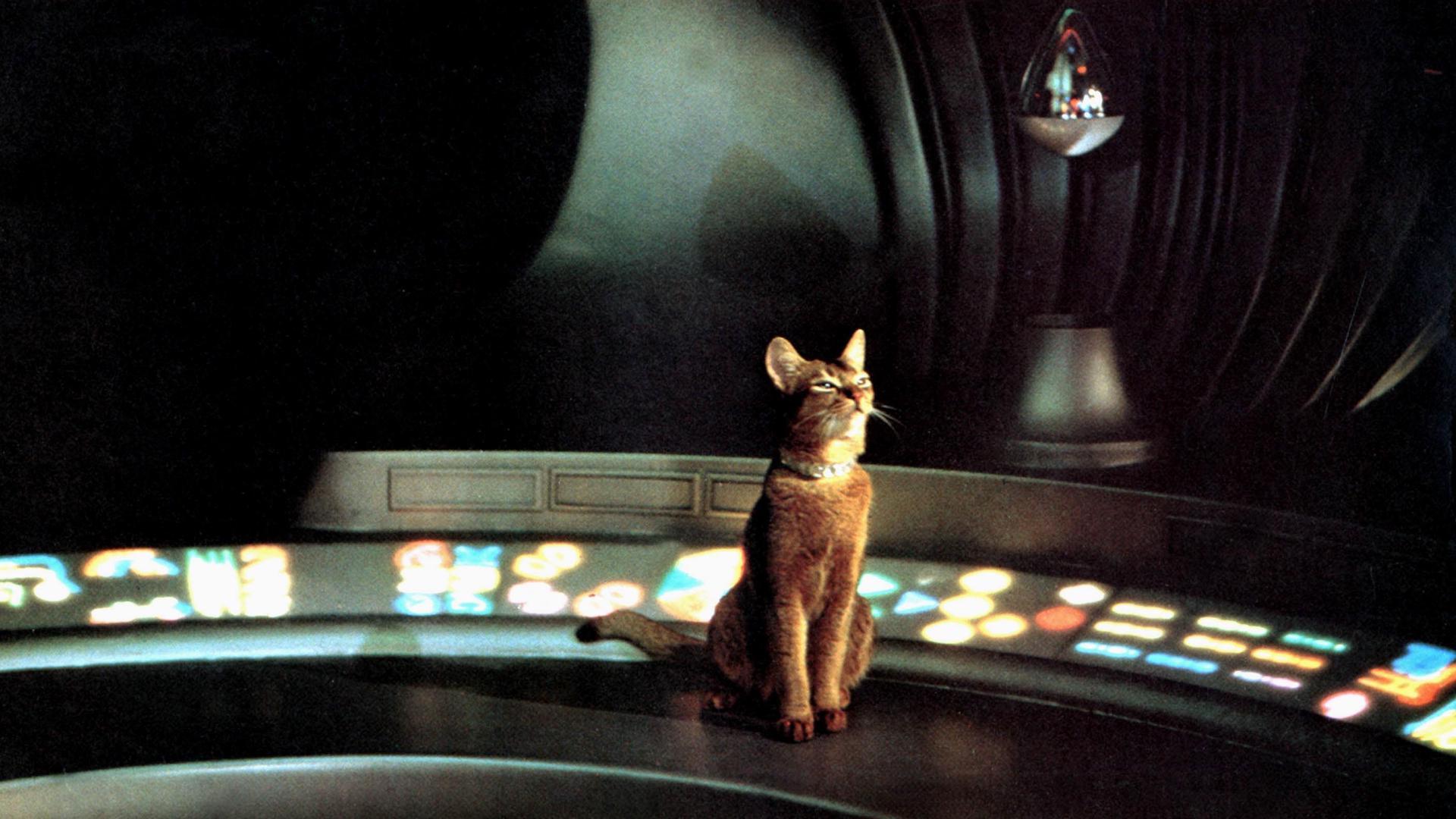
Walt Disney made a science fiction comedy film in 1978 called The Cat from Outer Space, about an Abyssinian space cat that gets stranded on Earth when his spacecraft is damaged, and gets involved in a host of adventures.
30. Long-lived
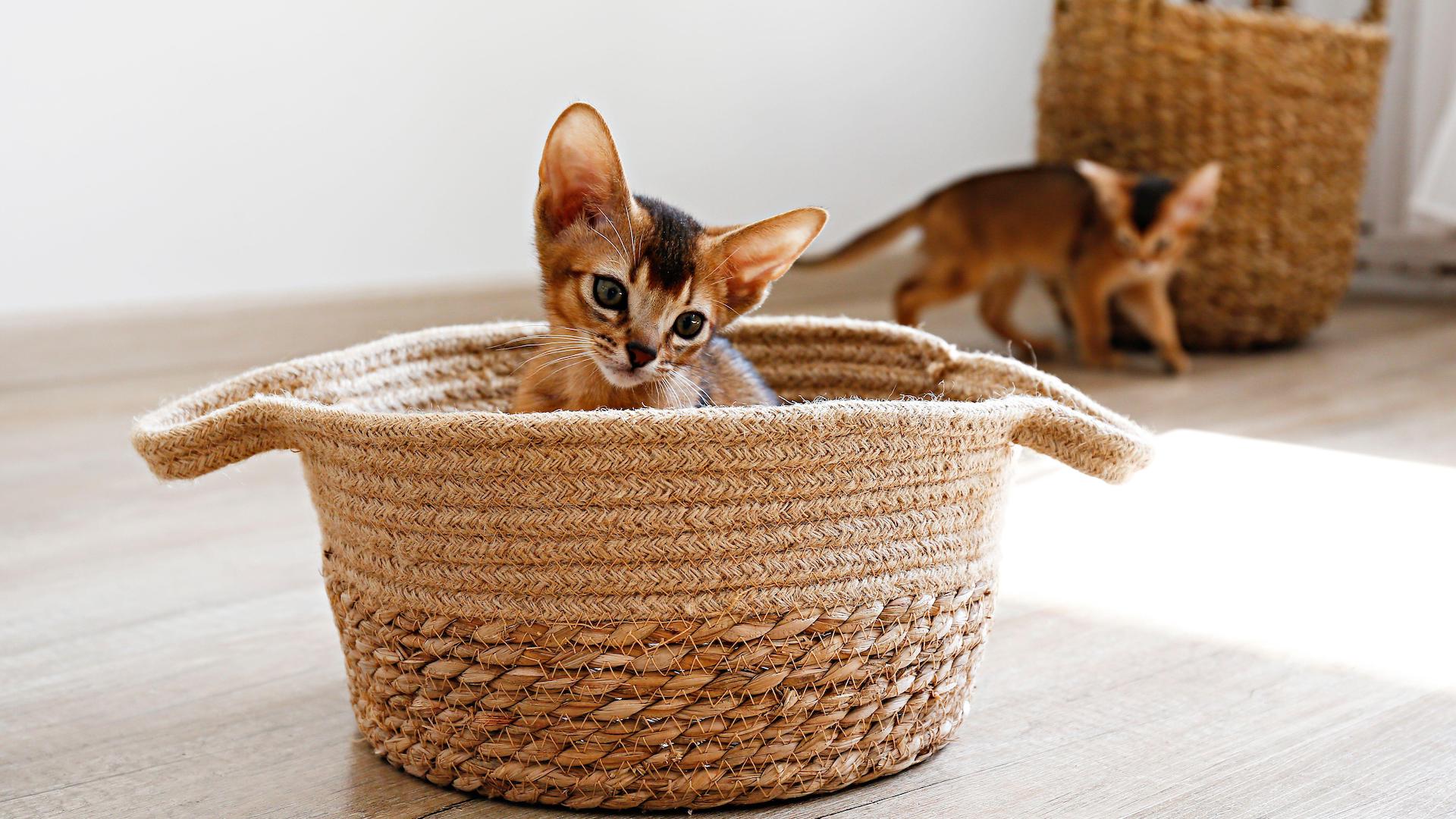
Due to their sense of adventure, Abyssinians can be prone to the odd accident which shortens their average lifespan. However, they are generally a healthy cat and barring misadventure, will easily live for 13–15 years, and it’s not uncommon to hear of Abys living into their twenties.
31. Blue is beige
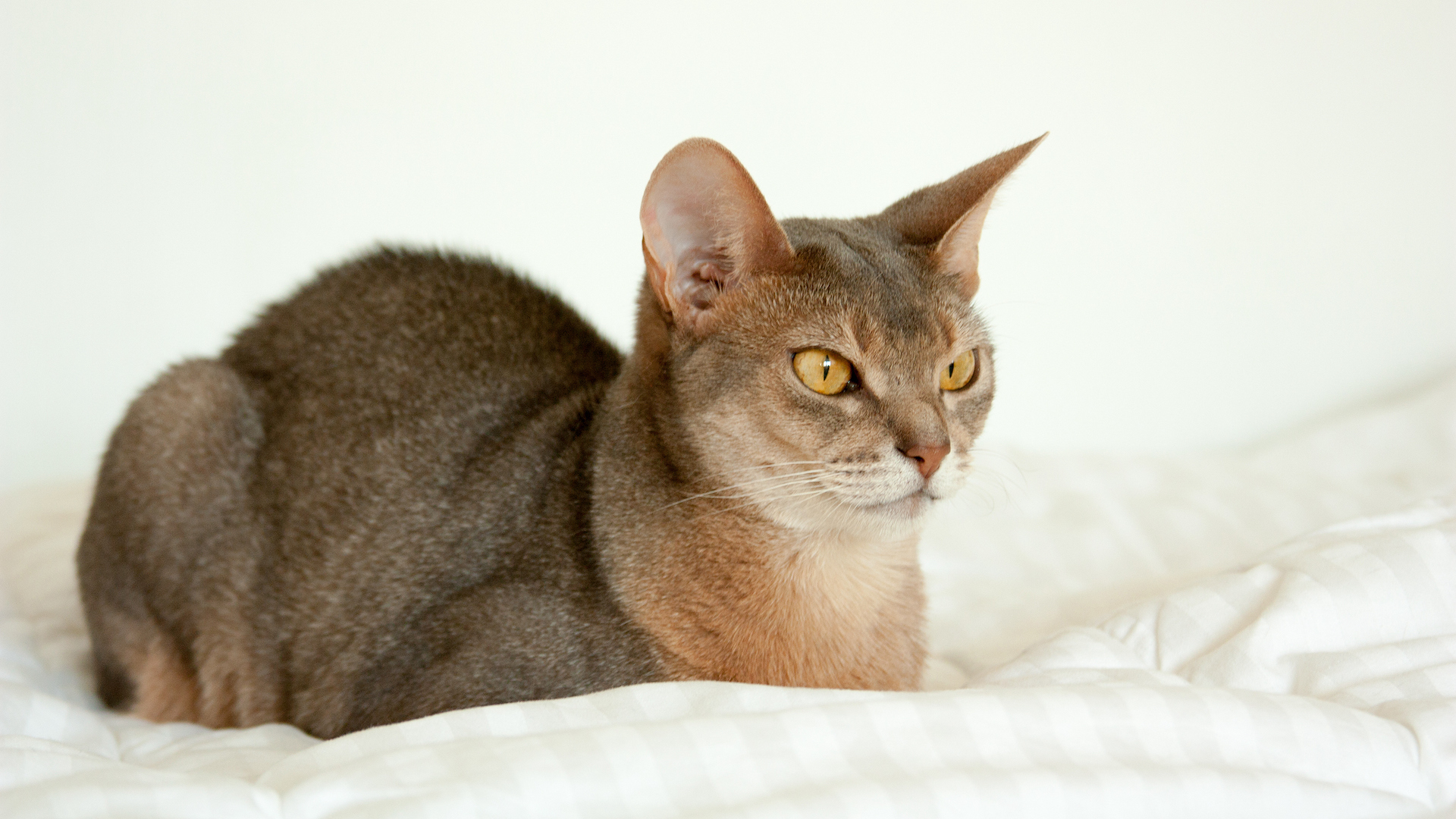
Blue is one of the official colors for the Abyssinian but if you think this sounds rather Munchkin-like, you’d be right. “Blue” in this case is actually a warm beige coat, with slate blue highlights (rather than brown as would go with the fawn).
32. Dental care
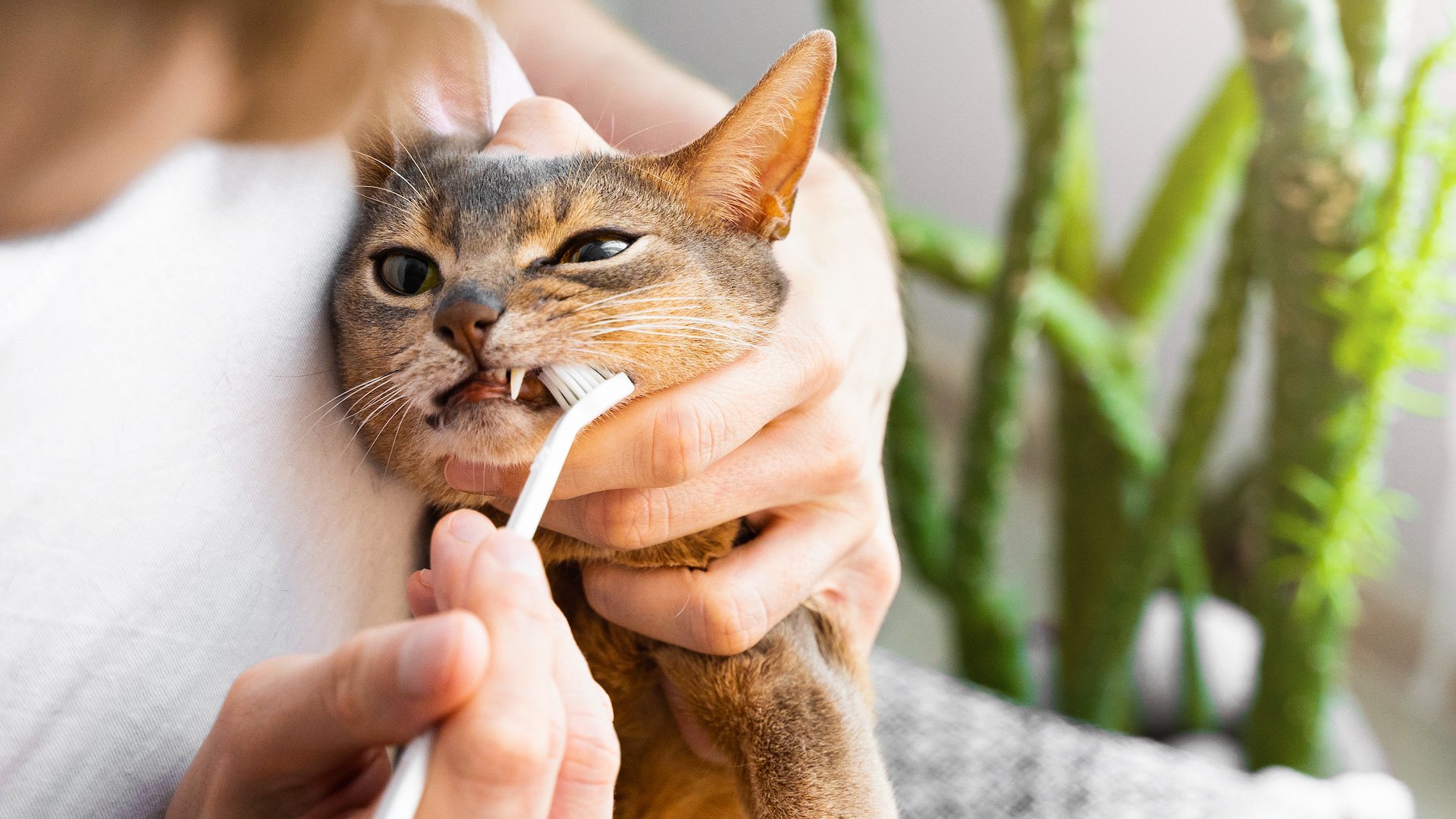
All cat owners should look after their pet’s teeth, but the Abyssinian is particularly prone to gum disease gingivitis. Knowing how to brush your cat's teeth is quite important with this breed. Brush their teeth at least once a week, preferably daily, and they’ll have gleaming healthy gnashers.







